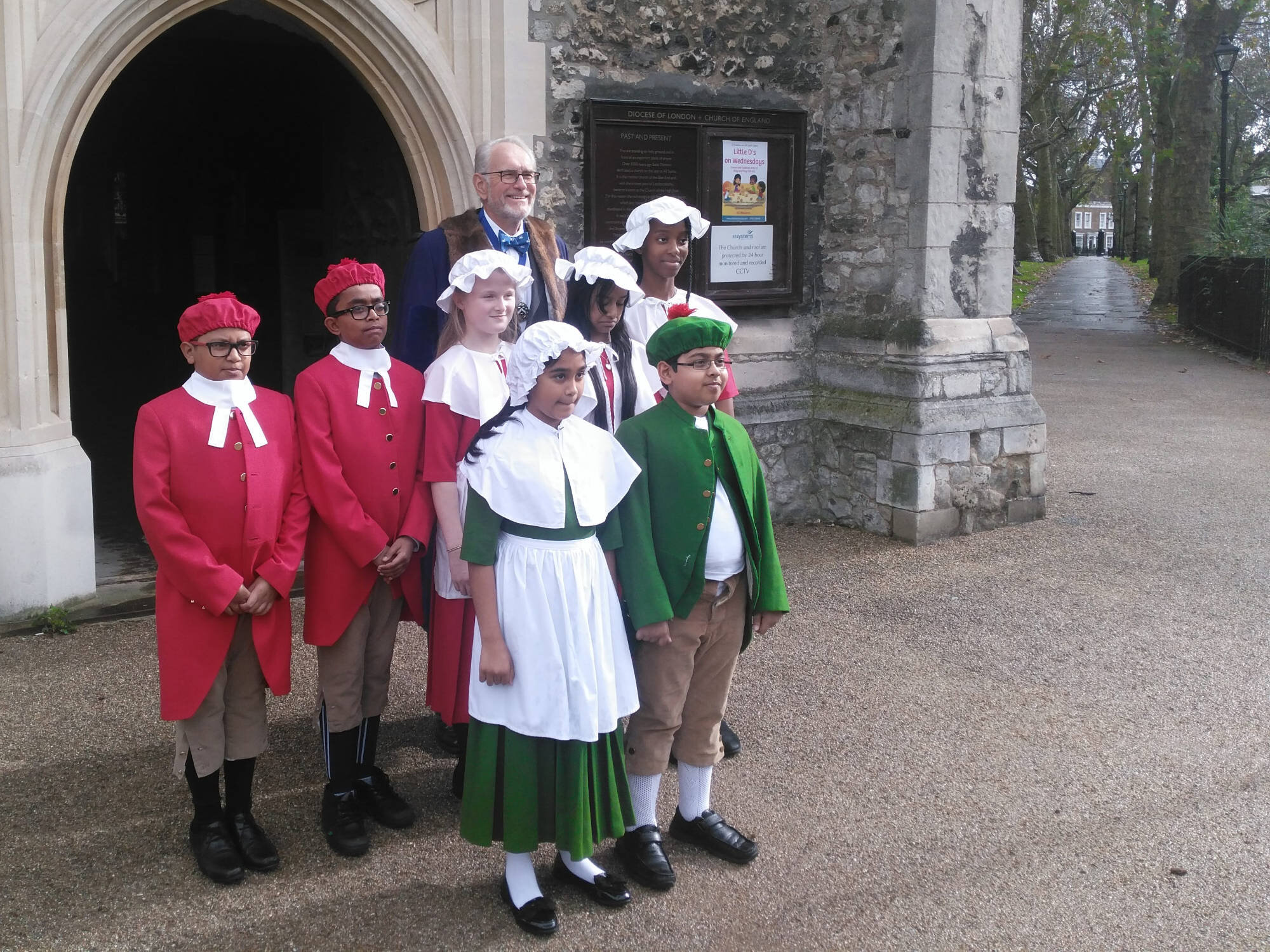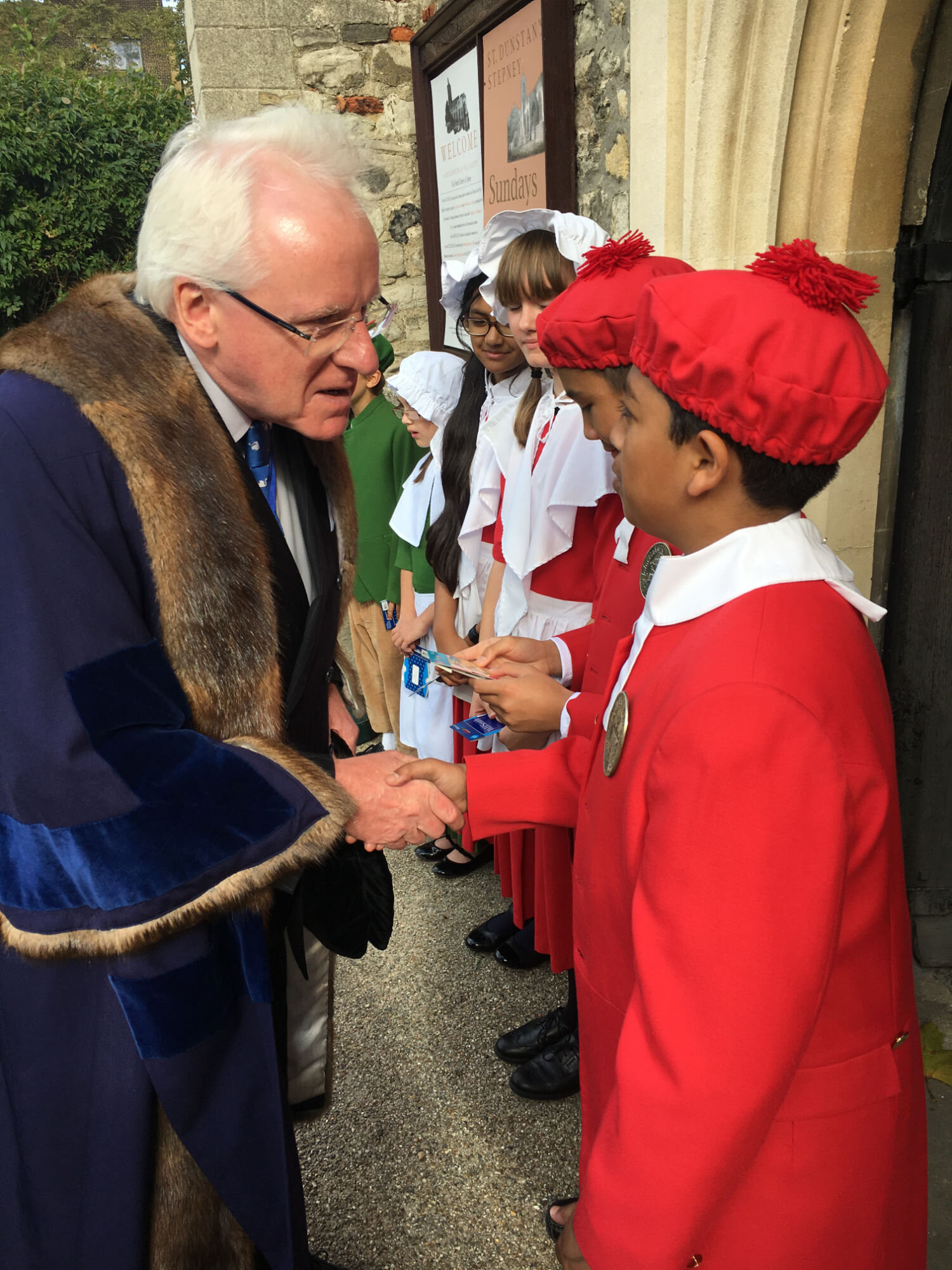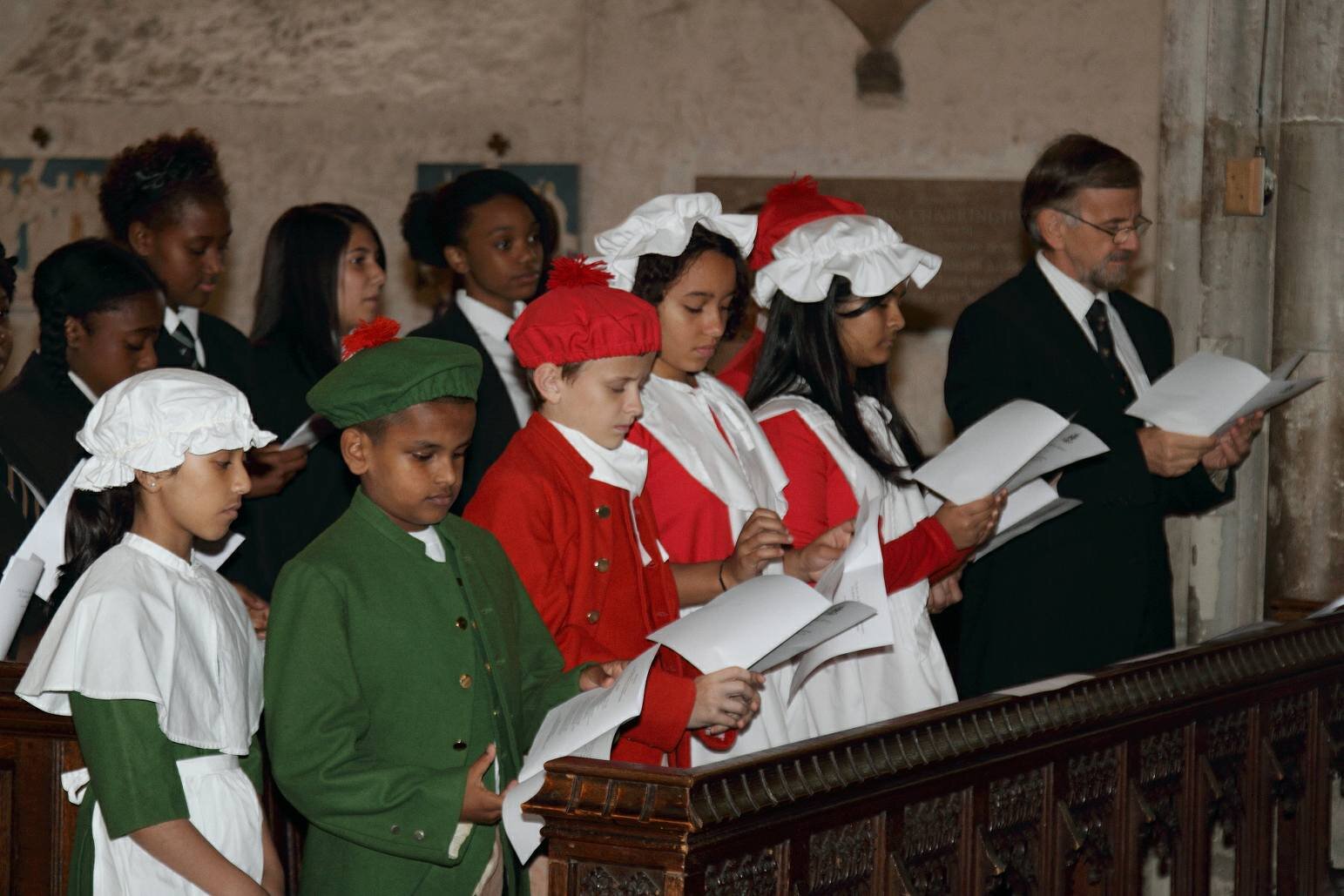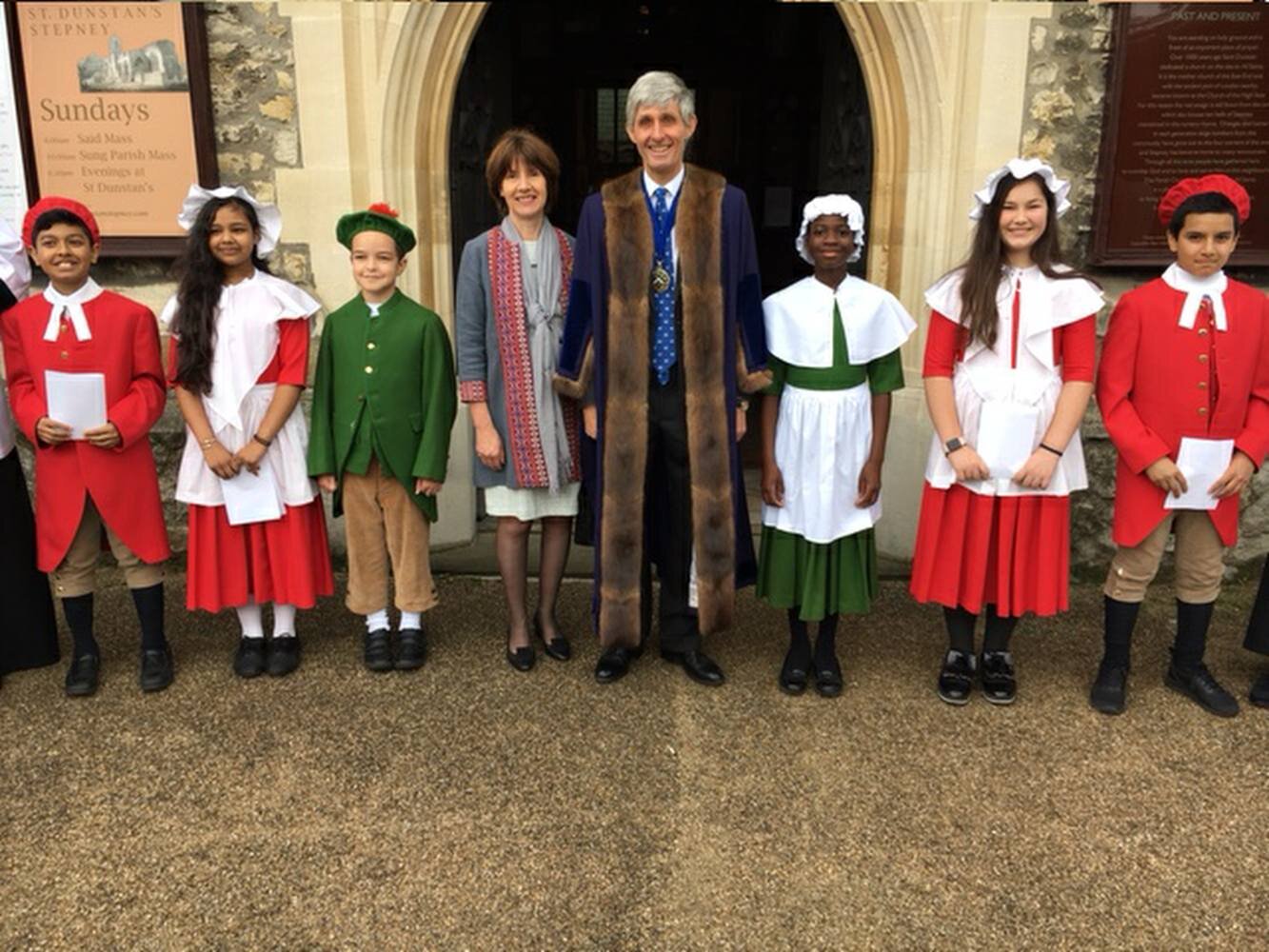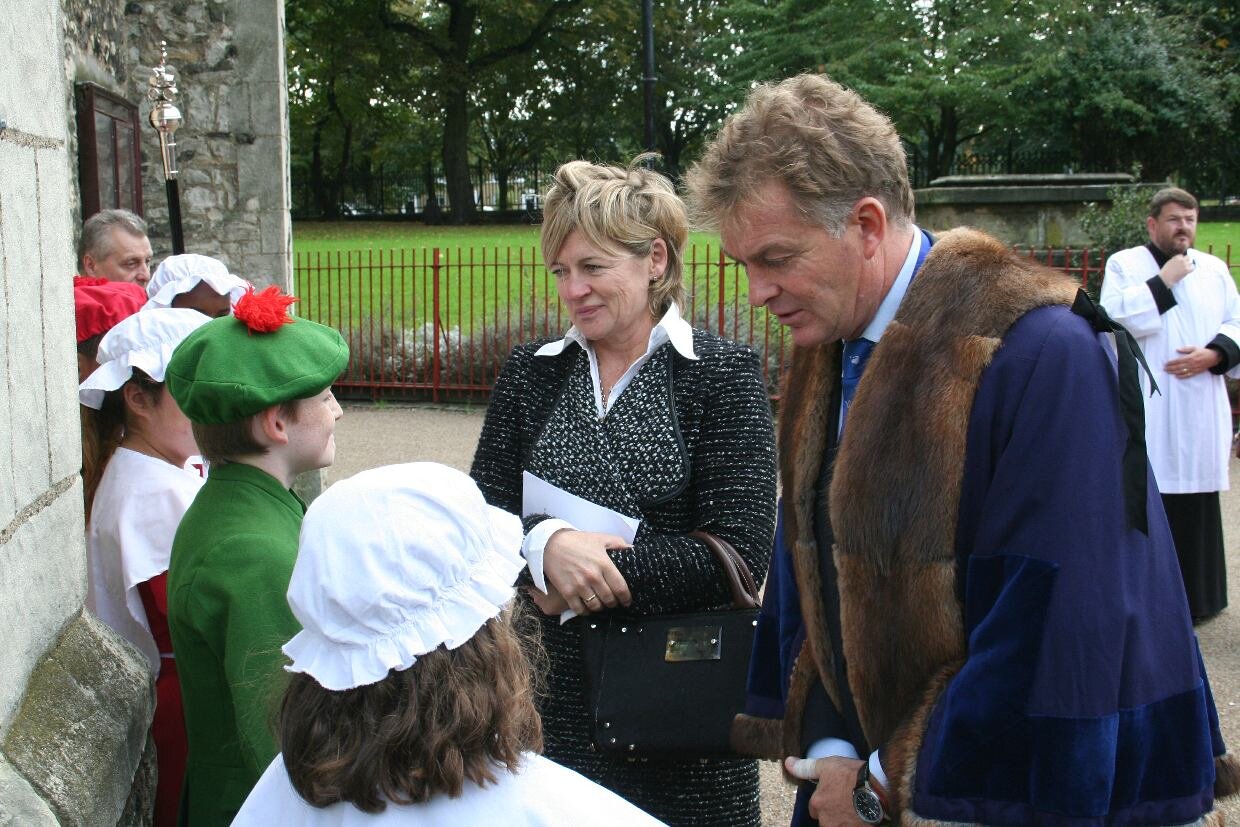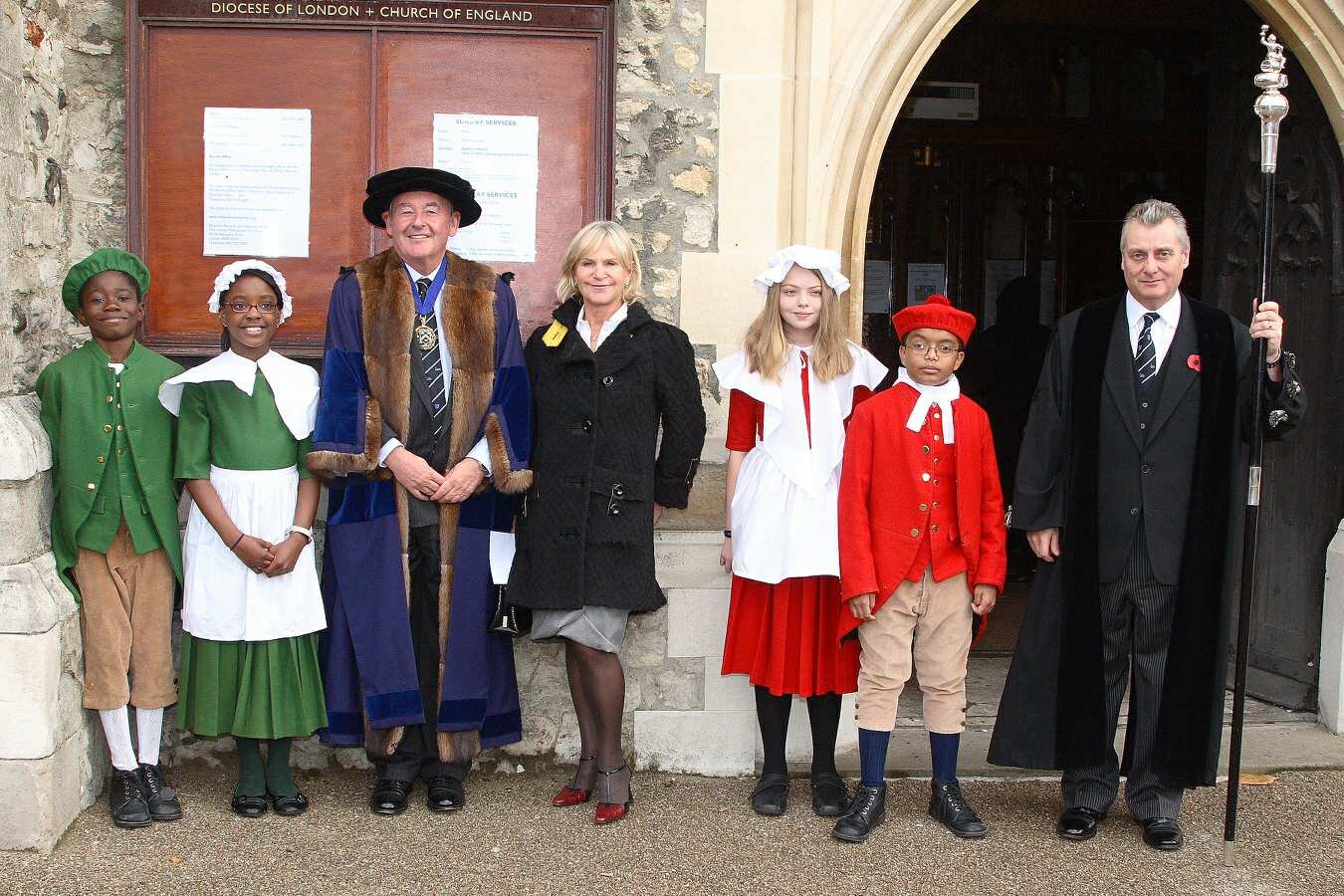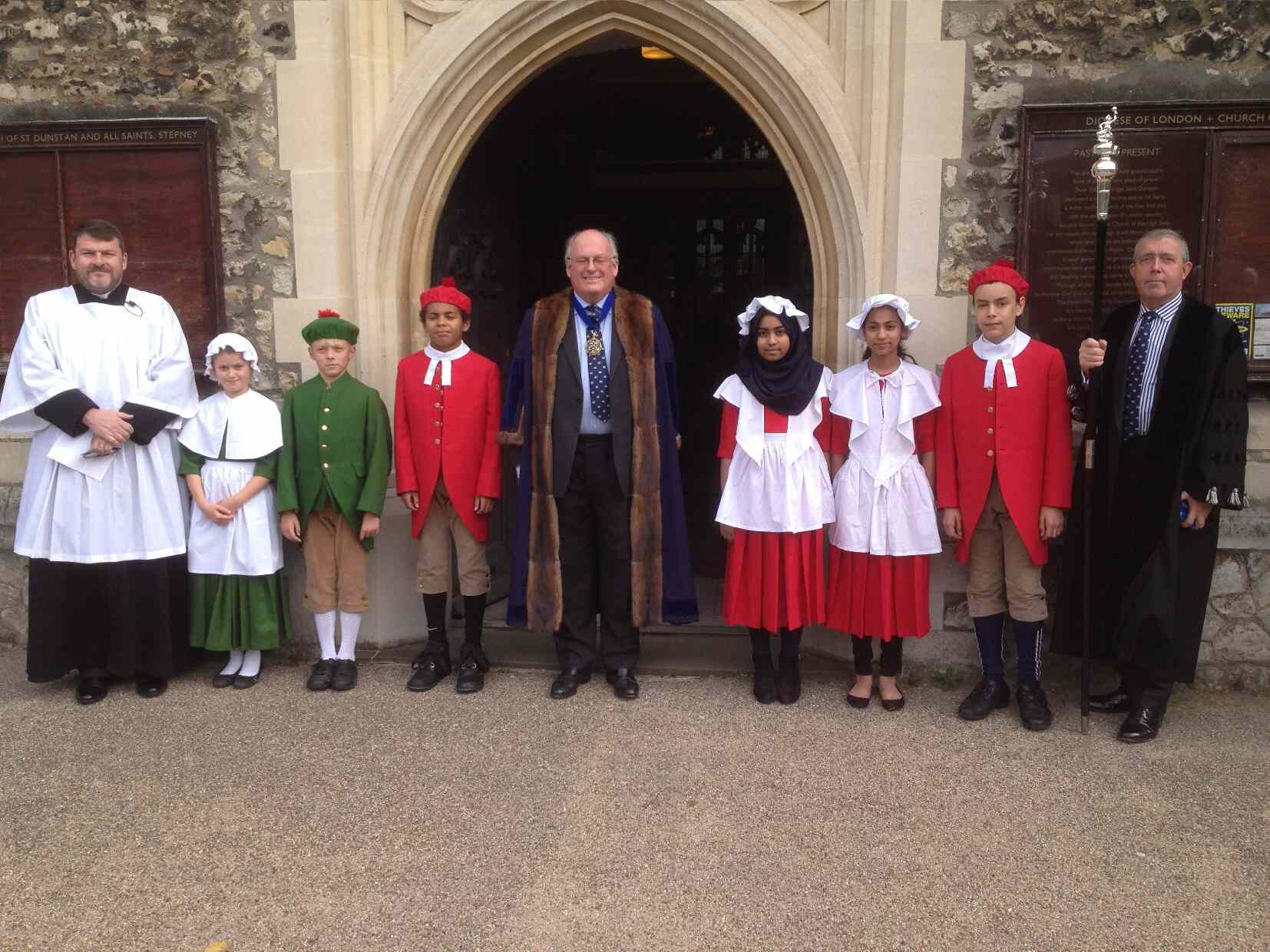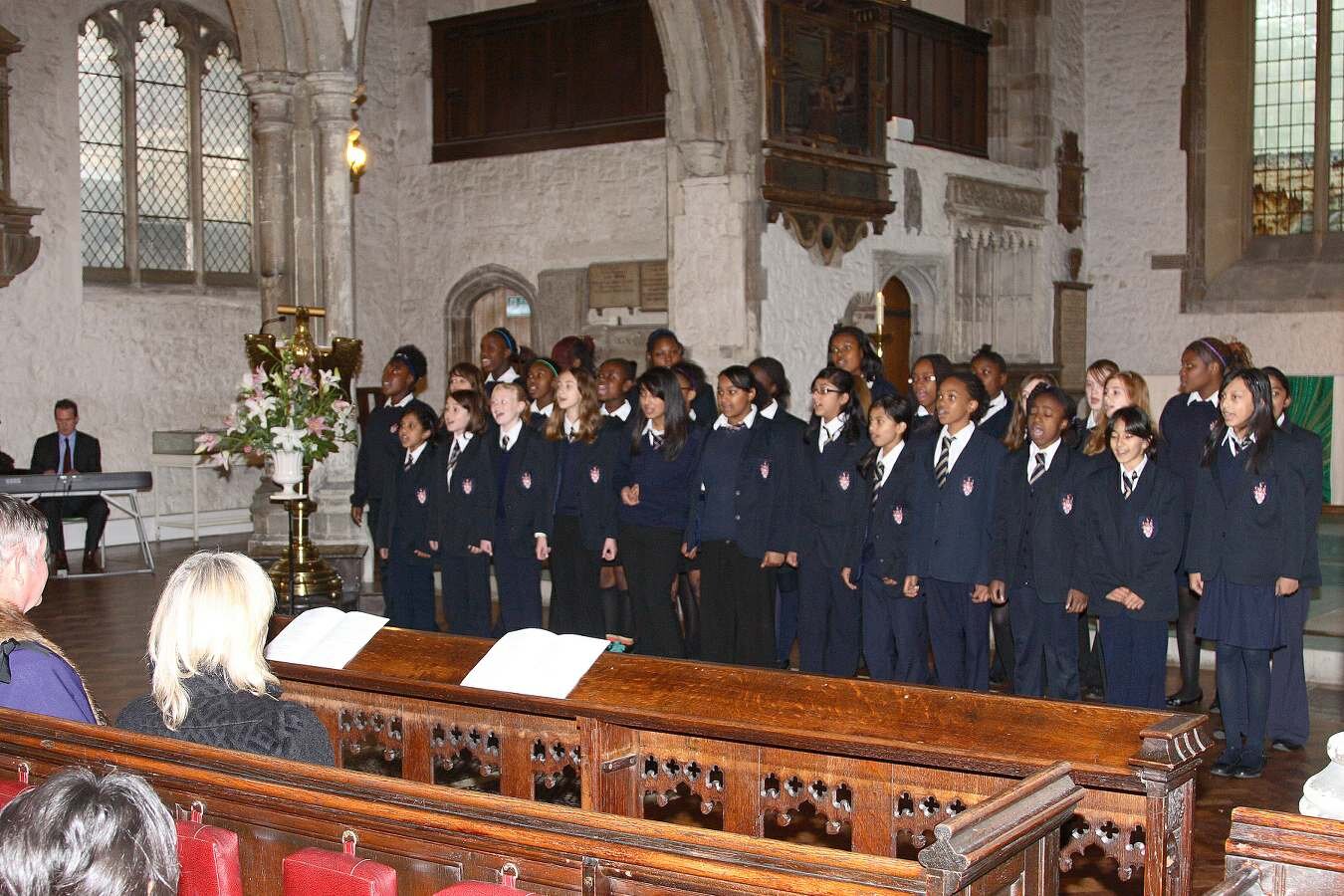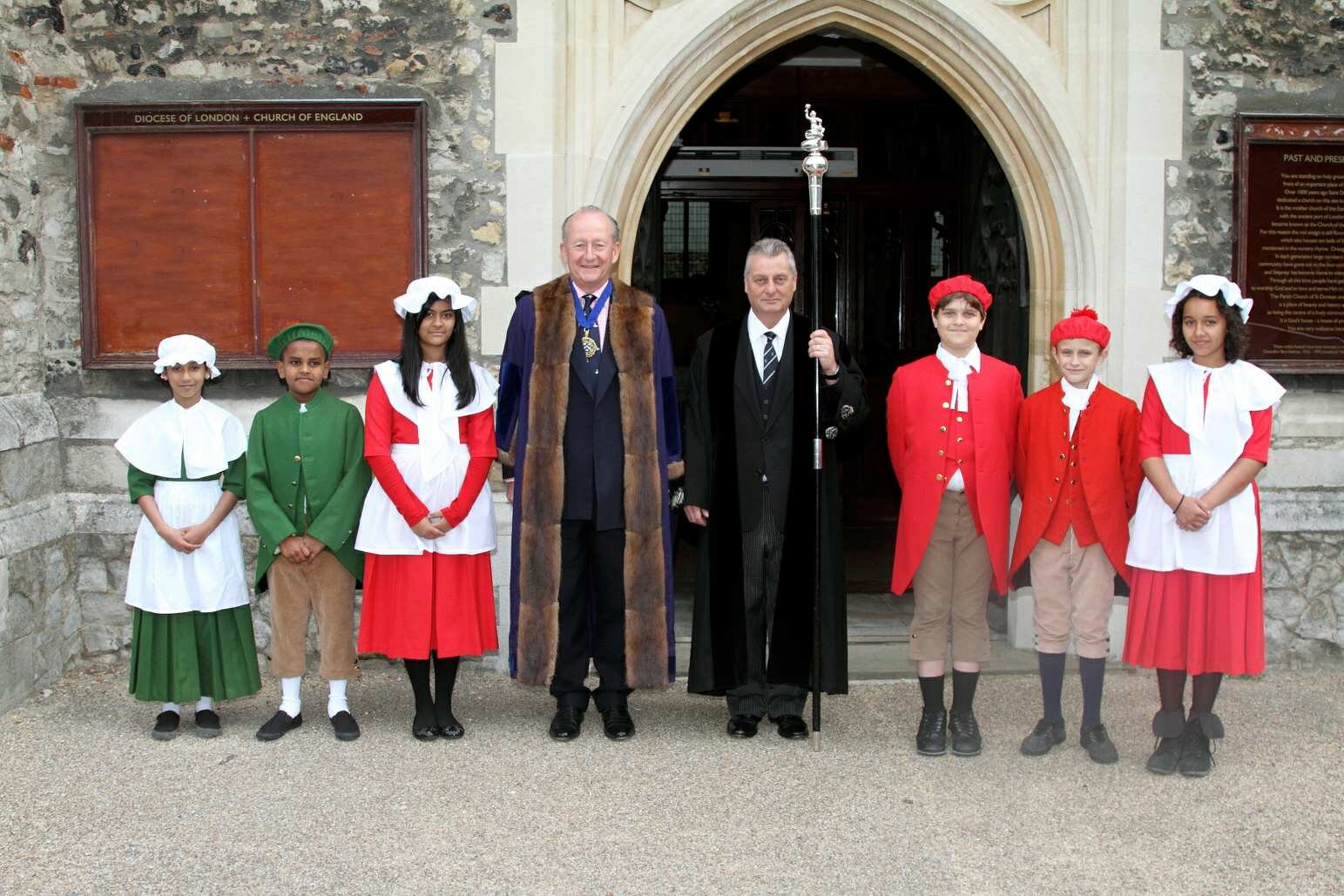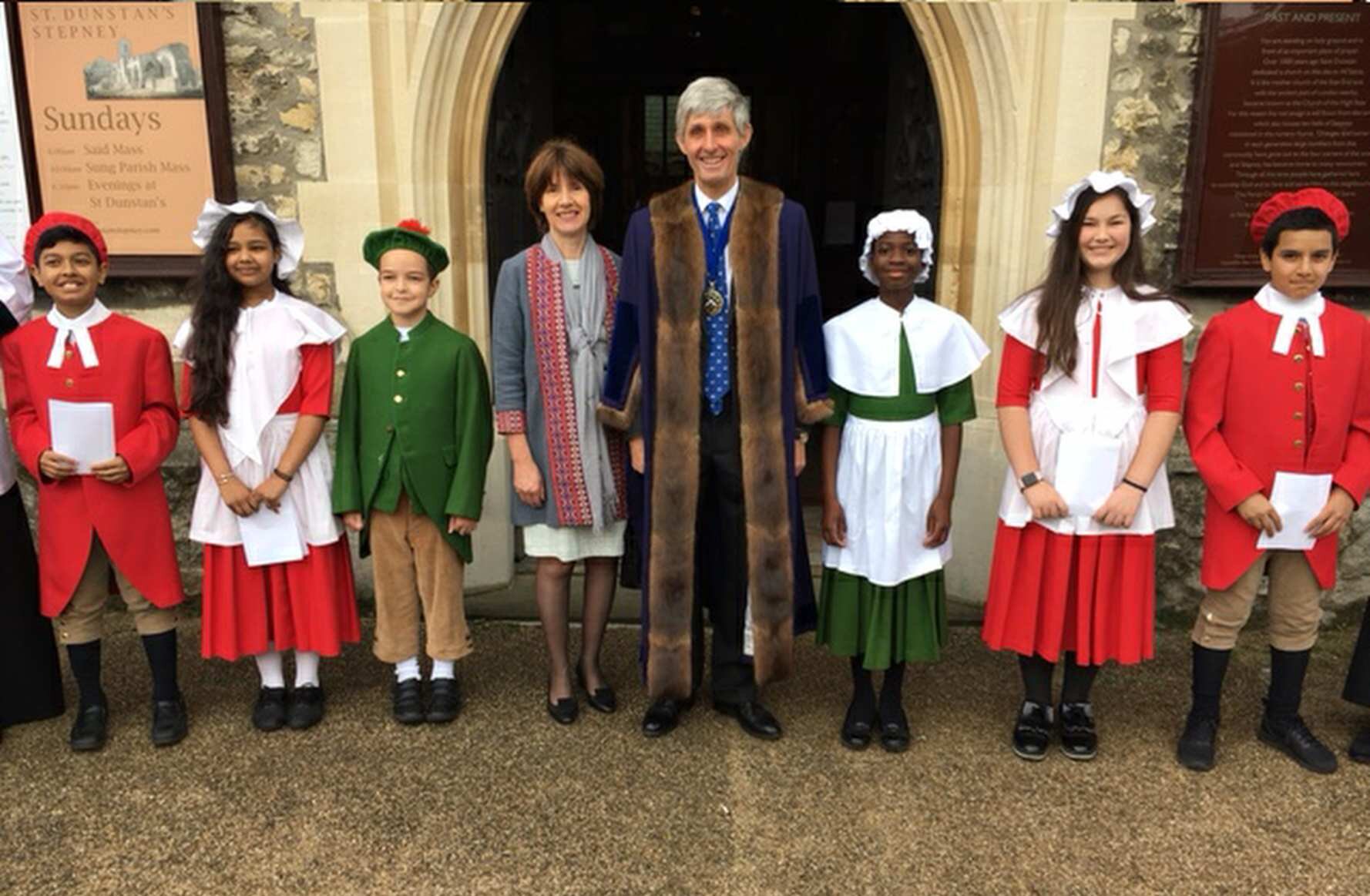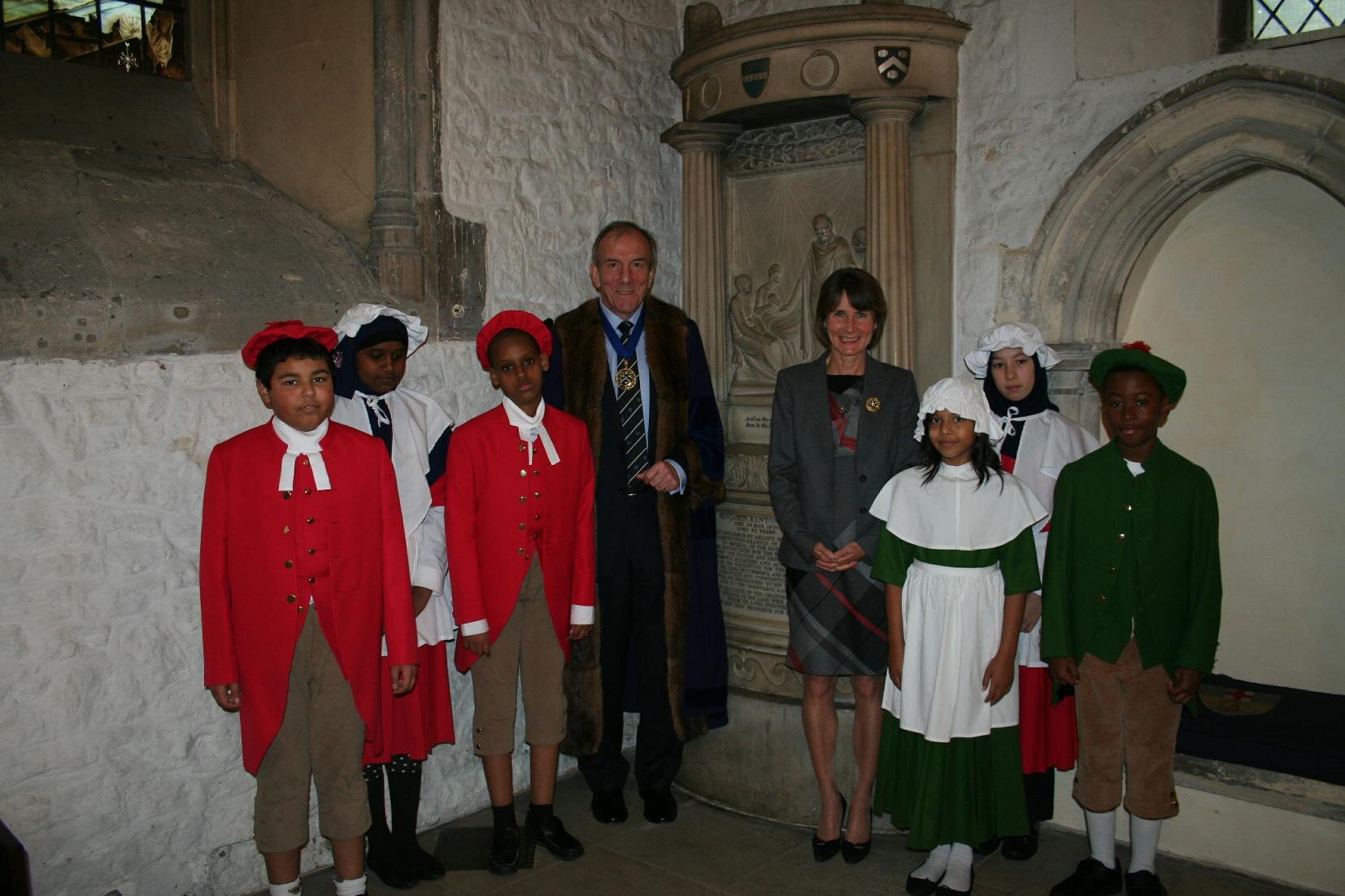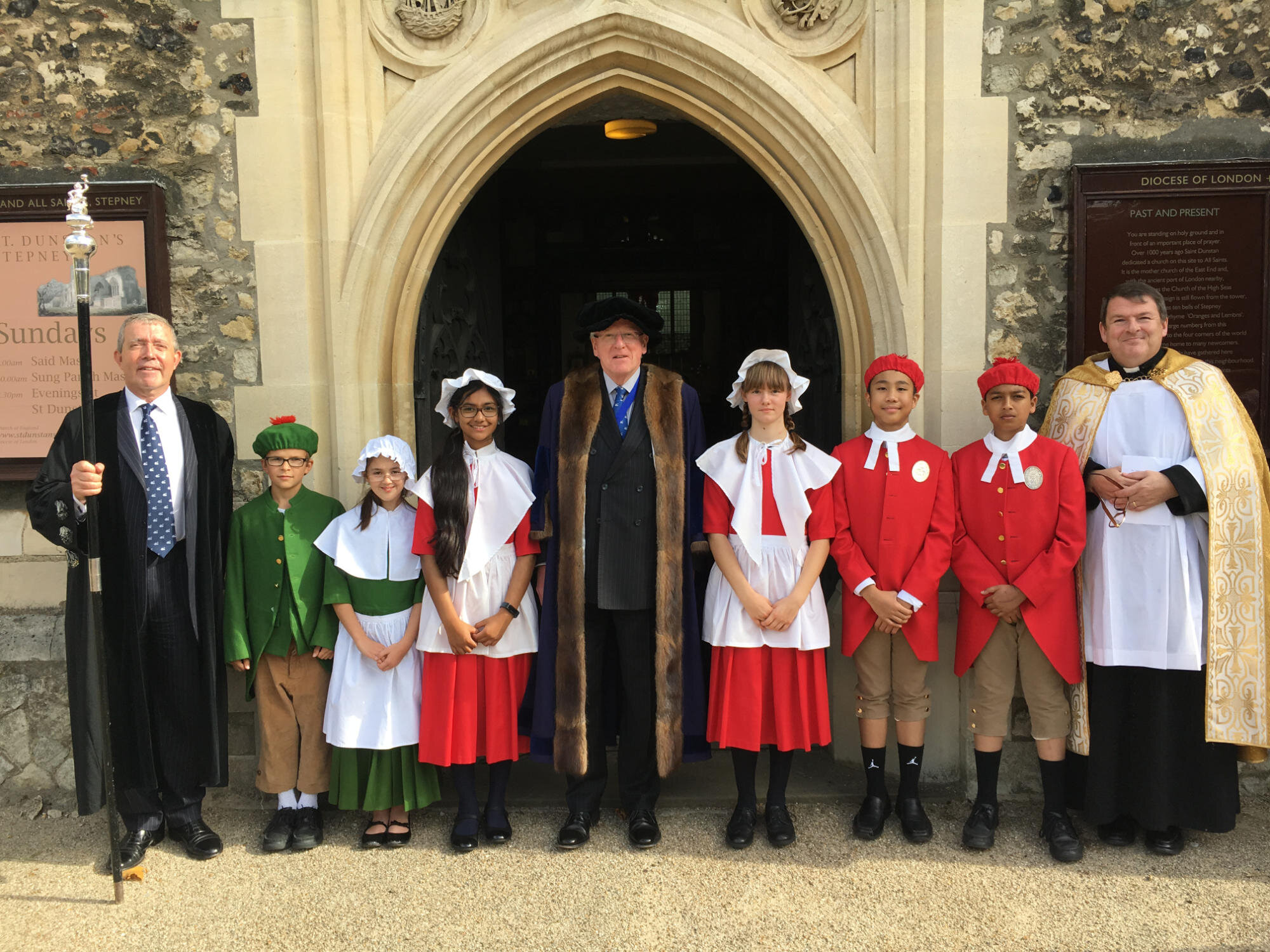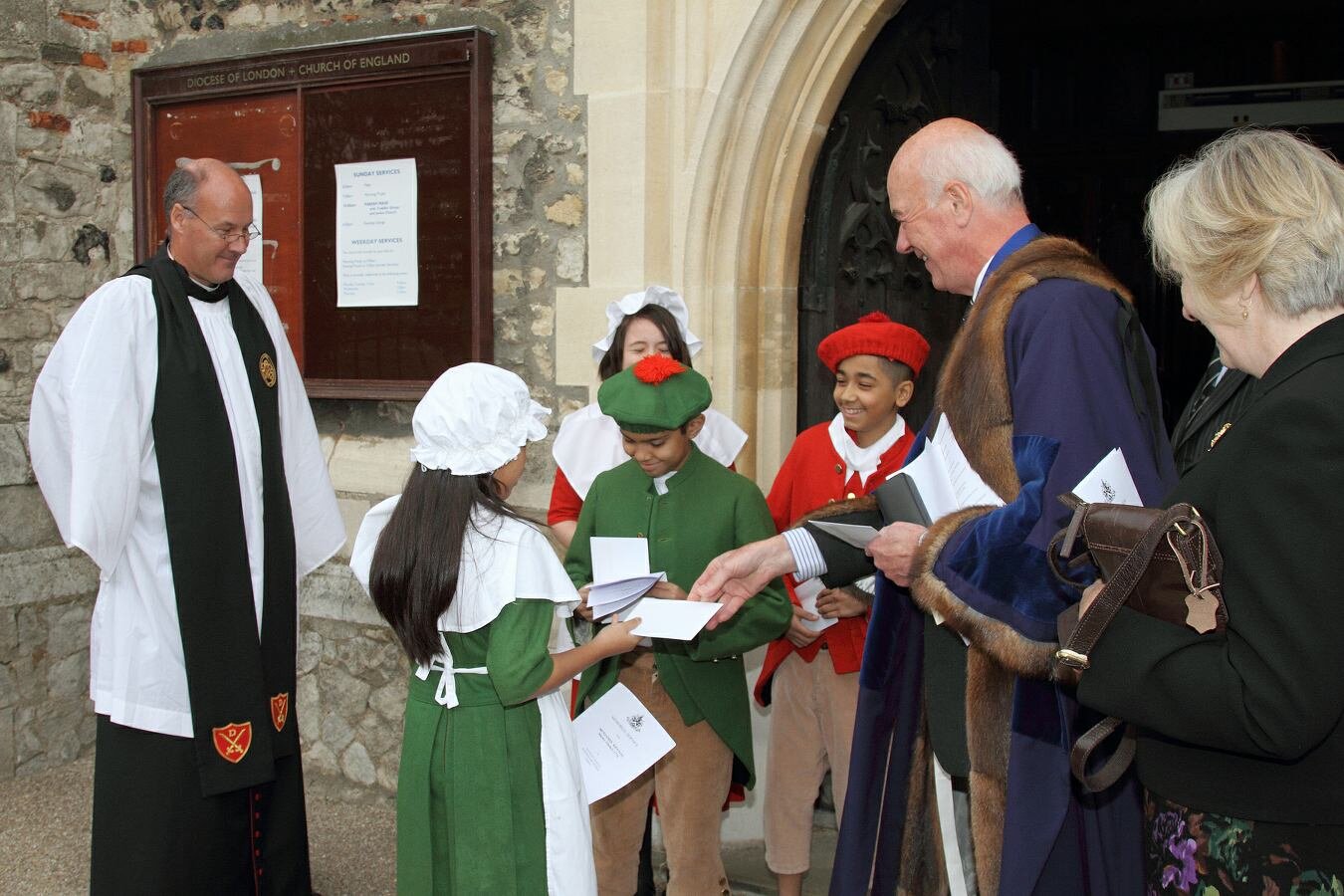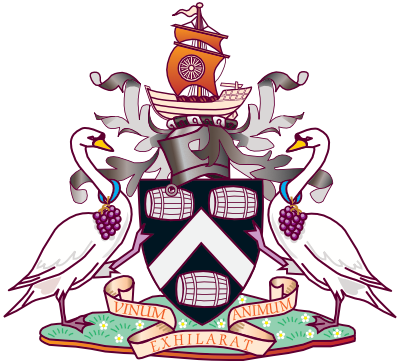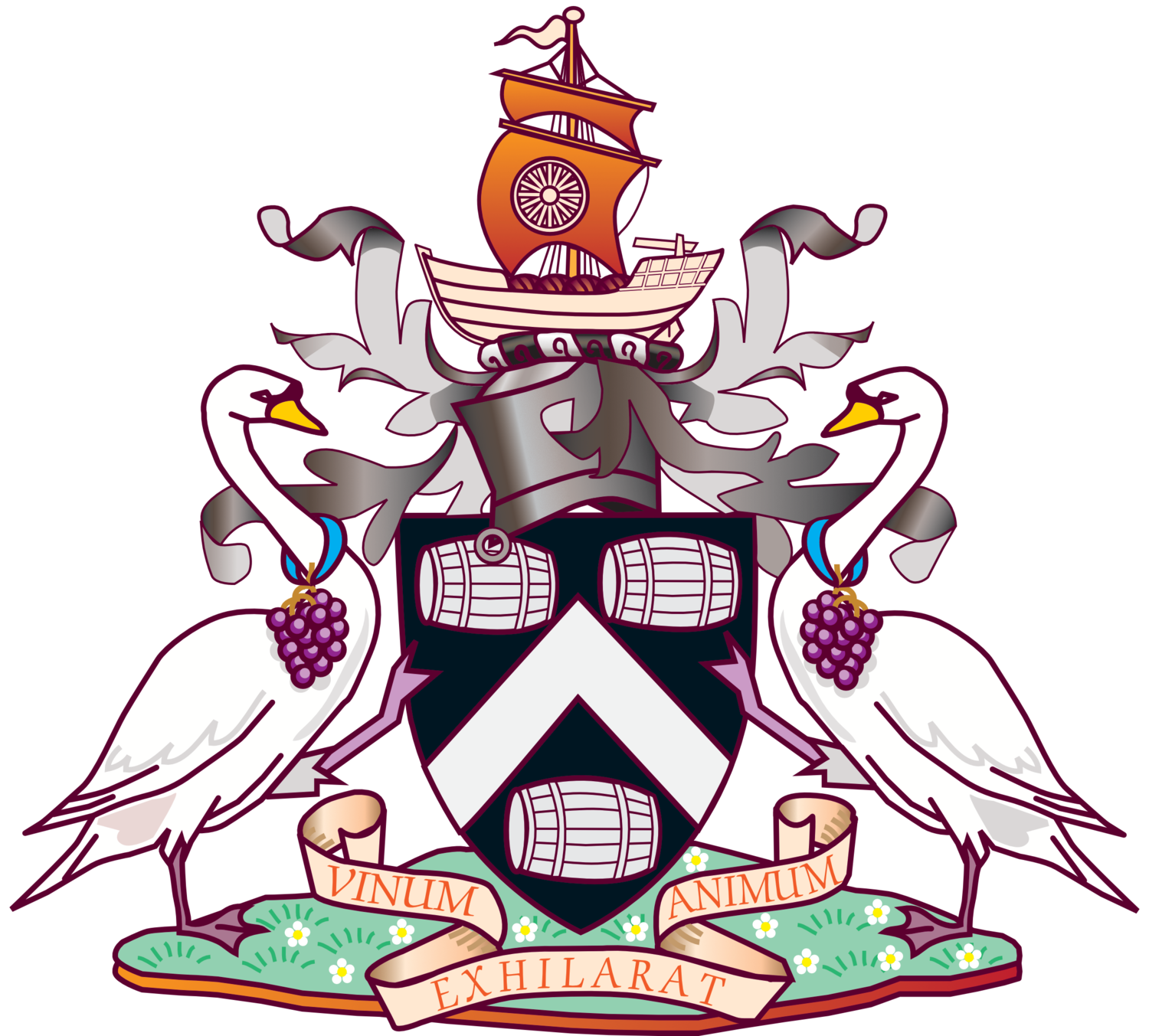Ceremony & Feasting
Traditions Galore
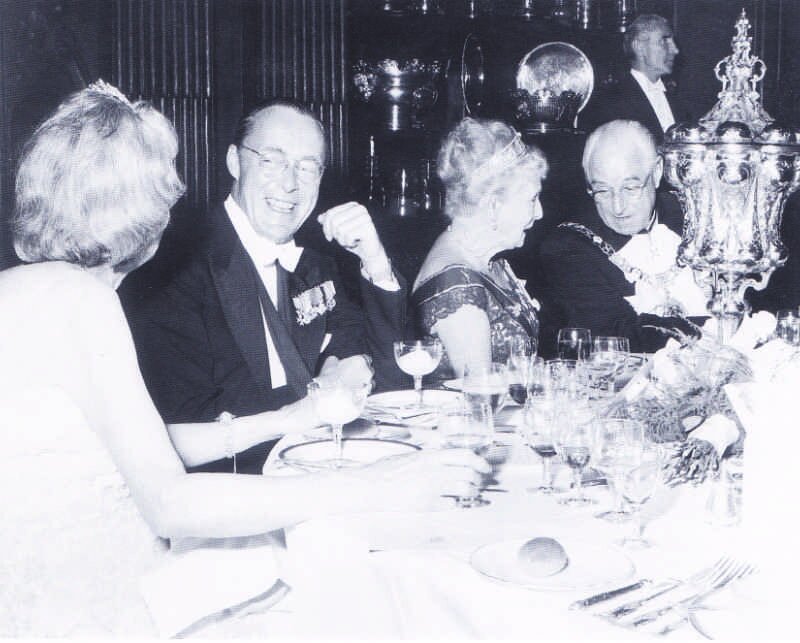
Prince Bernhard of the Netherlands, HRH Princess Alice, Countess of Athlone, The Lord Mayor
Celebrating 650 years
The Company has entertained many great people, among them the four sons of King Henry IV, General Monck, Queen Anne, the four sons of Queen Victoria and the four sons of King George V.
In 1964 when Air Chief Marshal Sir Christopher Courtney was Master, the Company held a Swan Feast to celebrate the six hundredth anniversary of the granting of the first charter, thought to have been dated at 1364, at which the Duke and Duchess of Gloucester, Prince Bernhard of the Netherlands, the Princess Royal and Princess Alice, Countess of Athlone, were present.
In 2013 the Company celebrated its 650th anniversary by holding two major events during that year.
St Paul's Cathedral
On Wednesday 13th March 2013 the Company held a Thanksgiving Service at St Paul's Cathedral presided over by the then Bishop of London, The Right Reverend and Right Honourable The Lord Chartres GCVO ChStJ PC FSA, followed by a drinks reception at the St Paul's Grange Court Hotel. We were privileged to be joined by TRH the Duke and Duchess of Gloucester, both members of the Company, as well as the Lord Mayor and both Sheriffs.
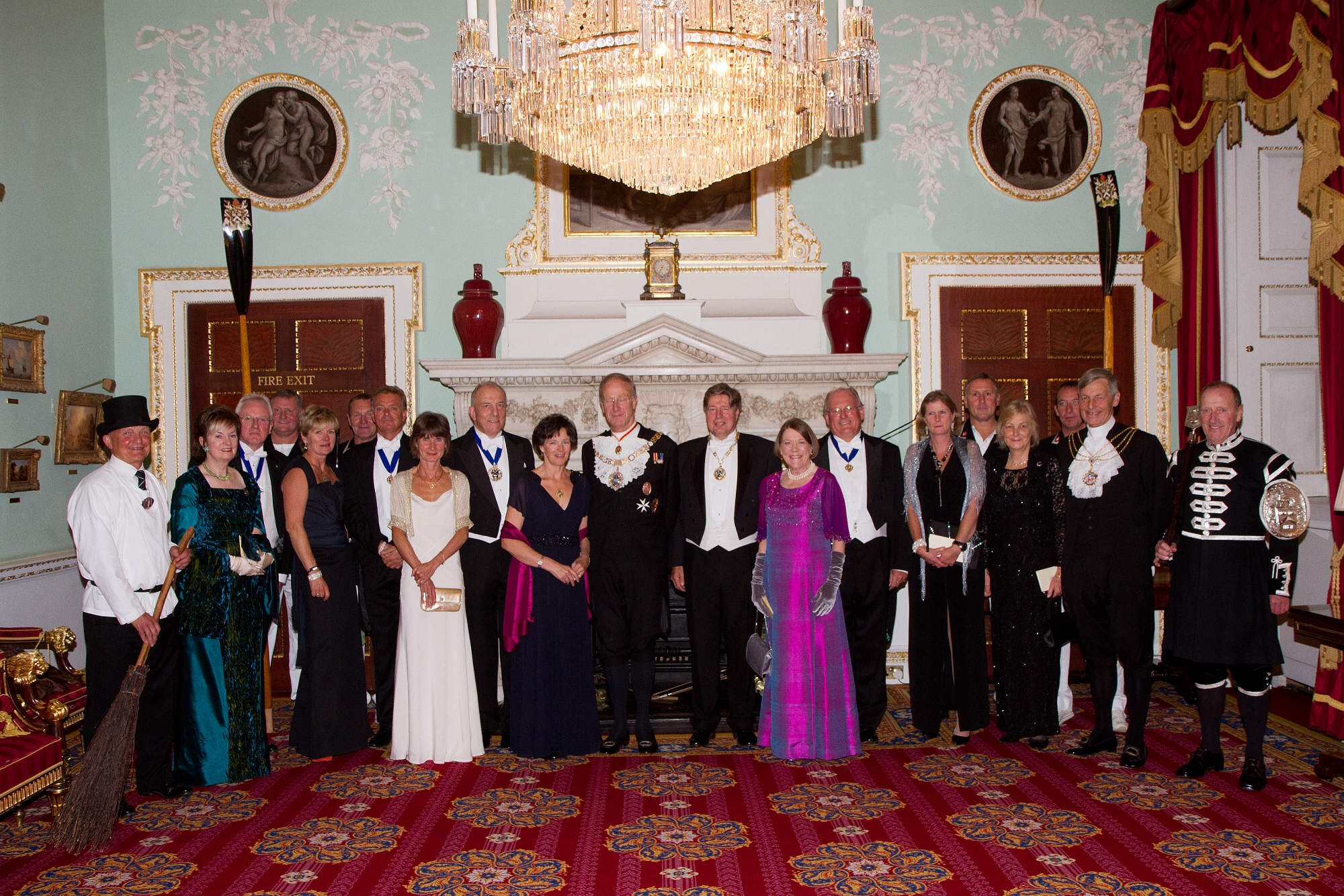
Mansion House
On Thursday 19th September 2013 the Company held an anniversary dinner at Mansion house with 320 Vintners present.
A splendid three-course dinner followed, washed down with some first-rate wines, not least a 2006 Chassagne-Montrachet and, fittingly, a 1996 Léoville-Barton, Anthony Barton having been made a Freeman Honoris Causa of the Company some ten days earlier.
The guest of honour was Alderman Sir Robert Finch, Lord Mayor Locum Tenens, and Lady Finch.
The Immediate Past Master, Michael Cox, proposed the toast to the guests in a typically amusing and erudite fashion, and the Lord Mayor Locum Tenens replied.
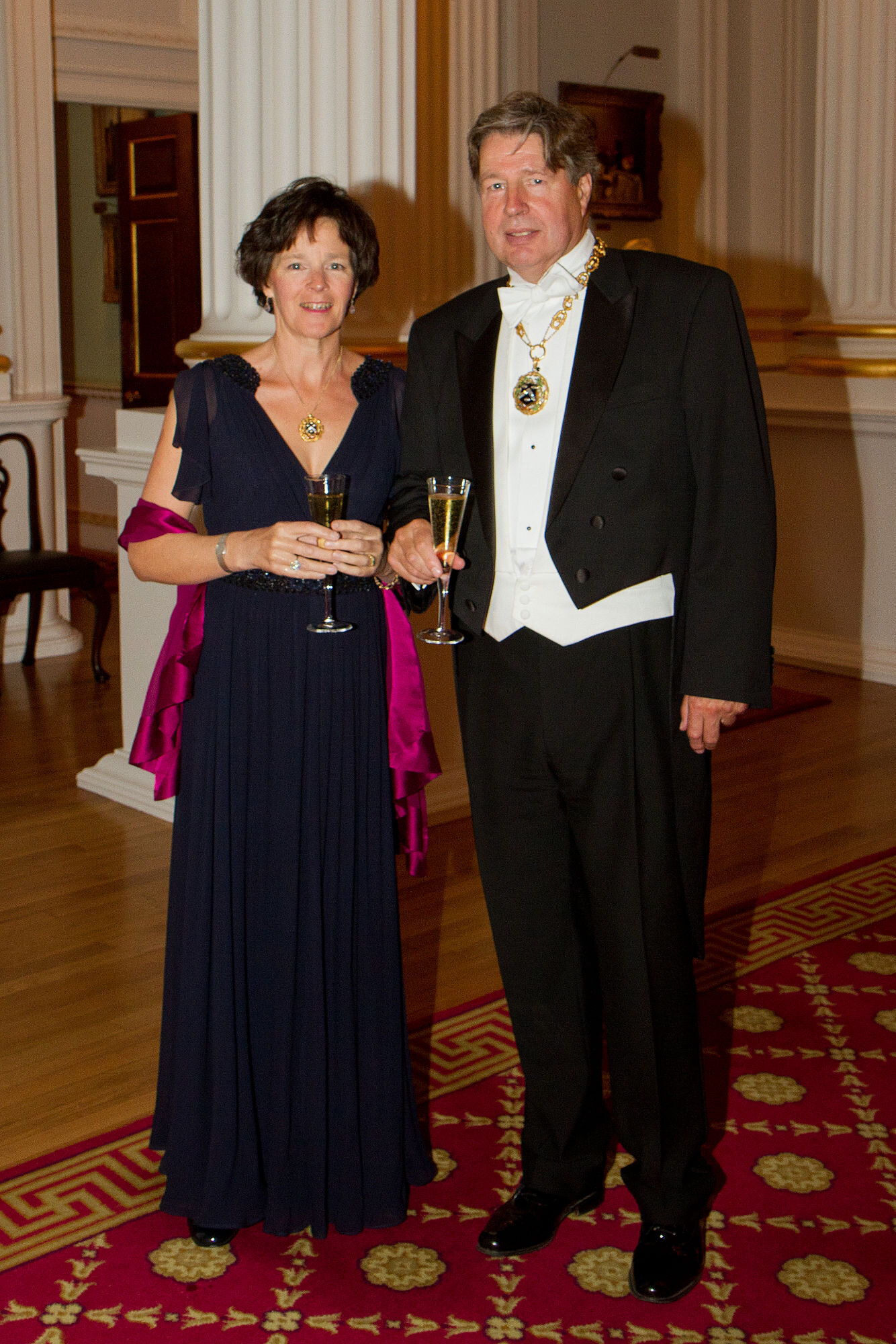
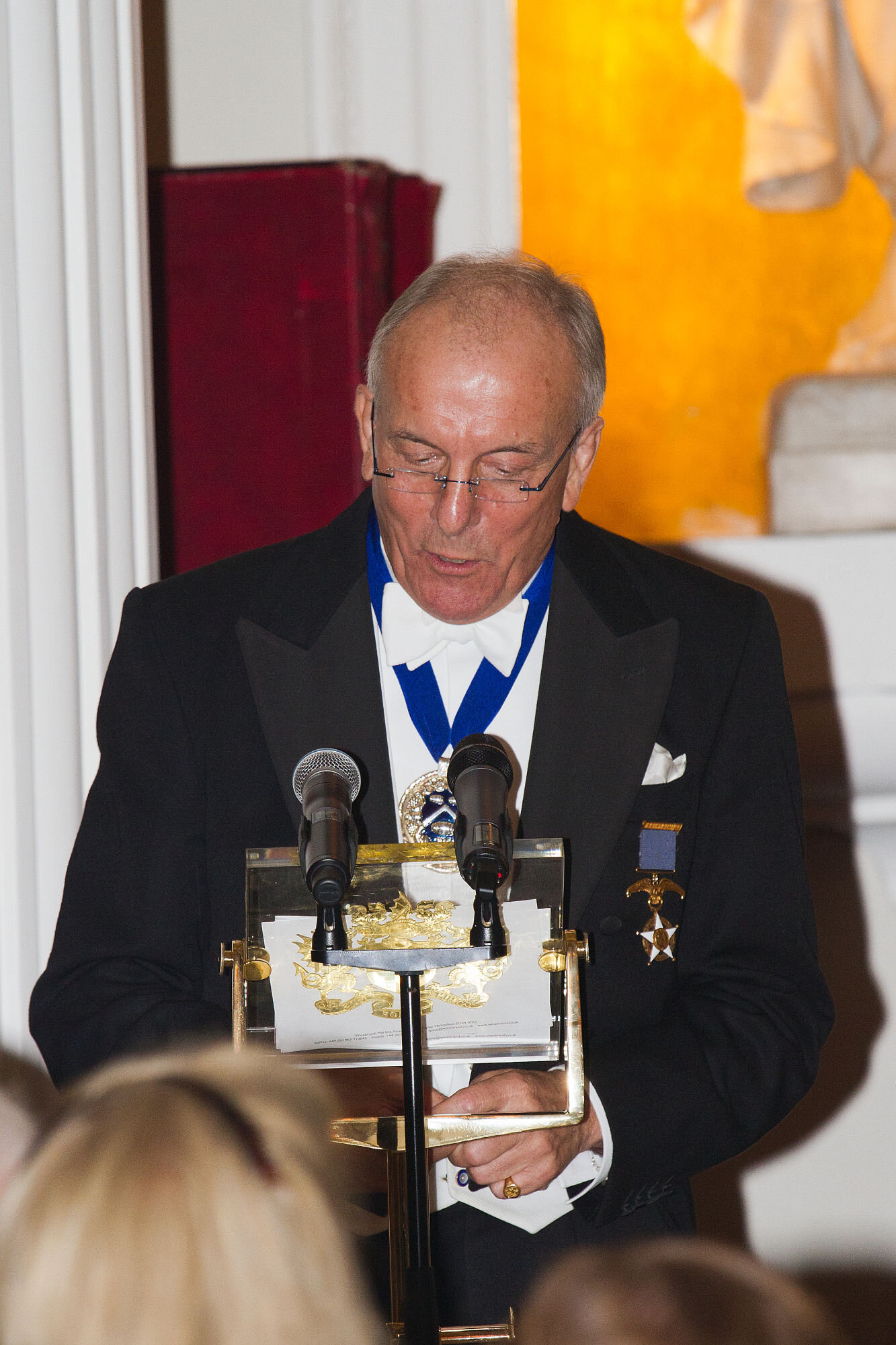
Below is the menu from the anniversary dinner at Mansion House which you may view online (click on full screen) or use the controls to share or download a PDF version.
The Five Kings
The Vintners practise many varied and fascinating ceremonies, most with interesting indicators of the medieval origins of the Company. These ceremonies have changed little over the years and they provide a wonderful insight into times gone by and the rich and varied history of the Company.
One of the earliest and most famous accounts of the Vintners’ Company is in the Liber Niger of Westminster Abbey. The report describes the feasting of five kings at a banquet held by the wine trader Henry Picard, Citizen and Vintner, in 1363.
The identity of the five kings is disputed, but the tradition has persisted in the toast of the Company:
The Toast to the Company
““The Vintners’ Company, may it flourish root and branch for ever with Five and the Master””
The Wine Porters
The Wine Porters were appointed by the Court of Assistants and entirely under its jurisdiction. Originally they had the exclusive right to “lower” and “set up” all wines imported into the City of London, but by 1799 this activity had been largely taken over by the West India and London Dock Companies.
The introduction of modern methods reduced the need for the Wine Porters’ services, and in 1963 their craft came to an end. The Company retains an Honorary Wine Porter for ceremonial purposes.
Installation
The Company attends a service in St James Garlickhythe after the Installation of the Master in July each year.
The Court walks in procession to and from the church. The Master and Wardens wear furred gowns and Tudor caps, and carry posies. The procession’s path is swept clean by a Wine Porter using a birch broom. The posies and the brooms are inherited from the Middle Ages. The posies sweetened the foul-smelling air of medieval London and the brooms were necessary to clear the filth that covered the medieval streets.
The Company 'Wine Porter' now leads and 'sweeps' the street ahead of the main procession.
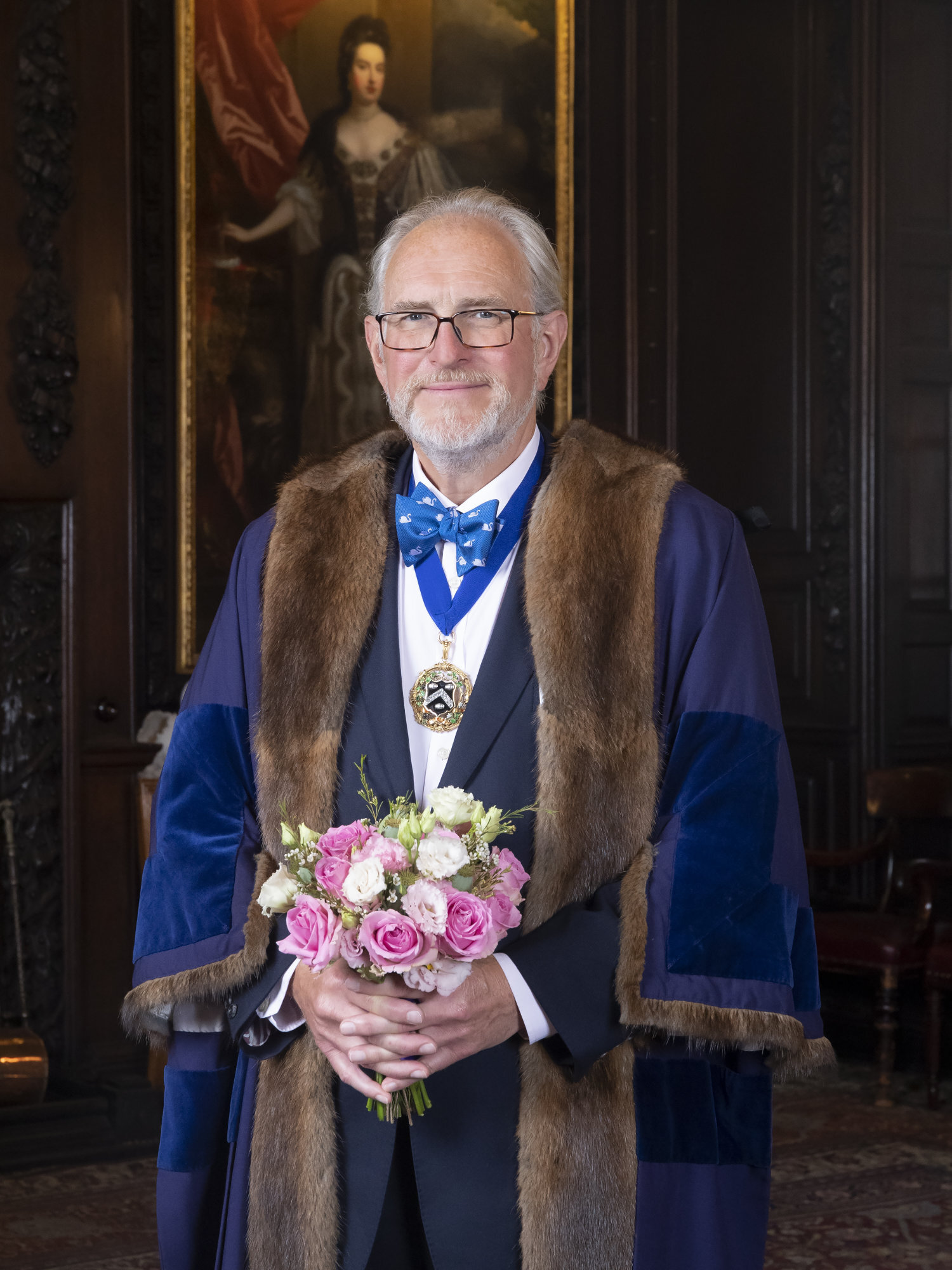
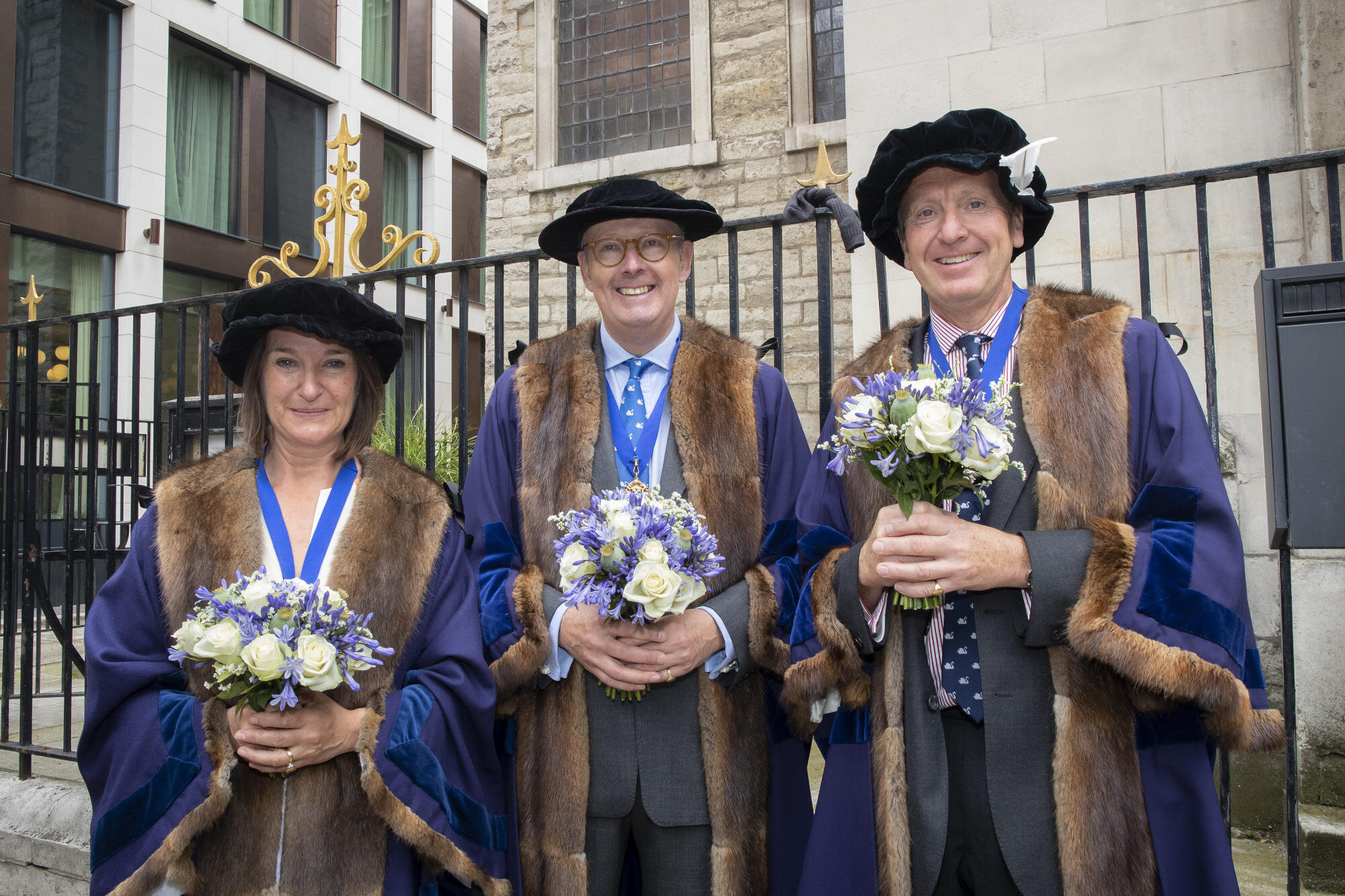
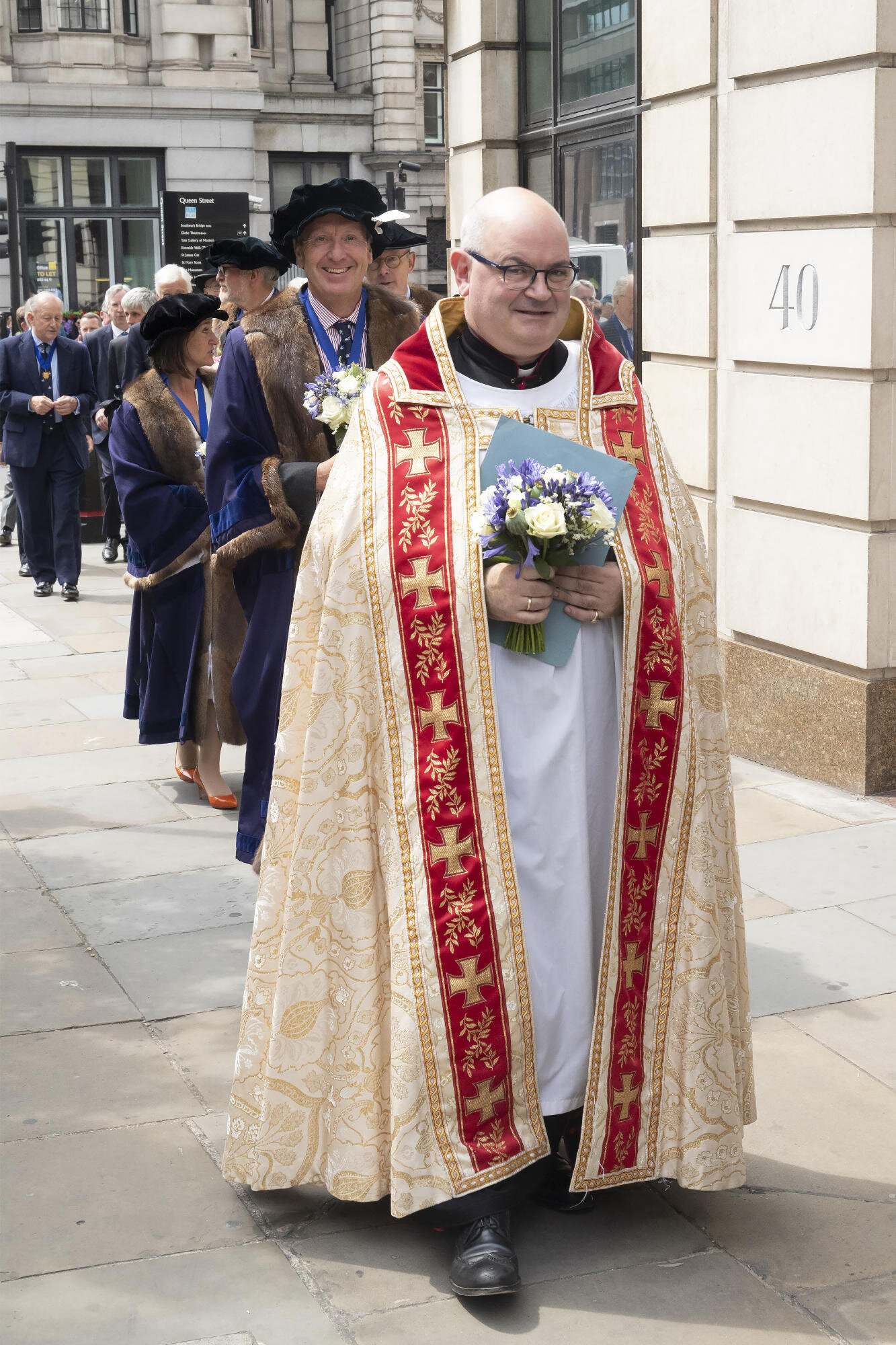

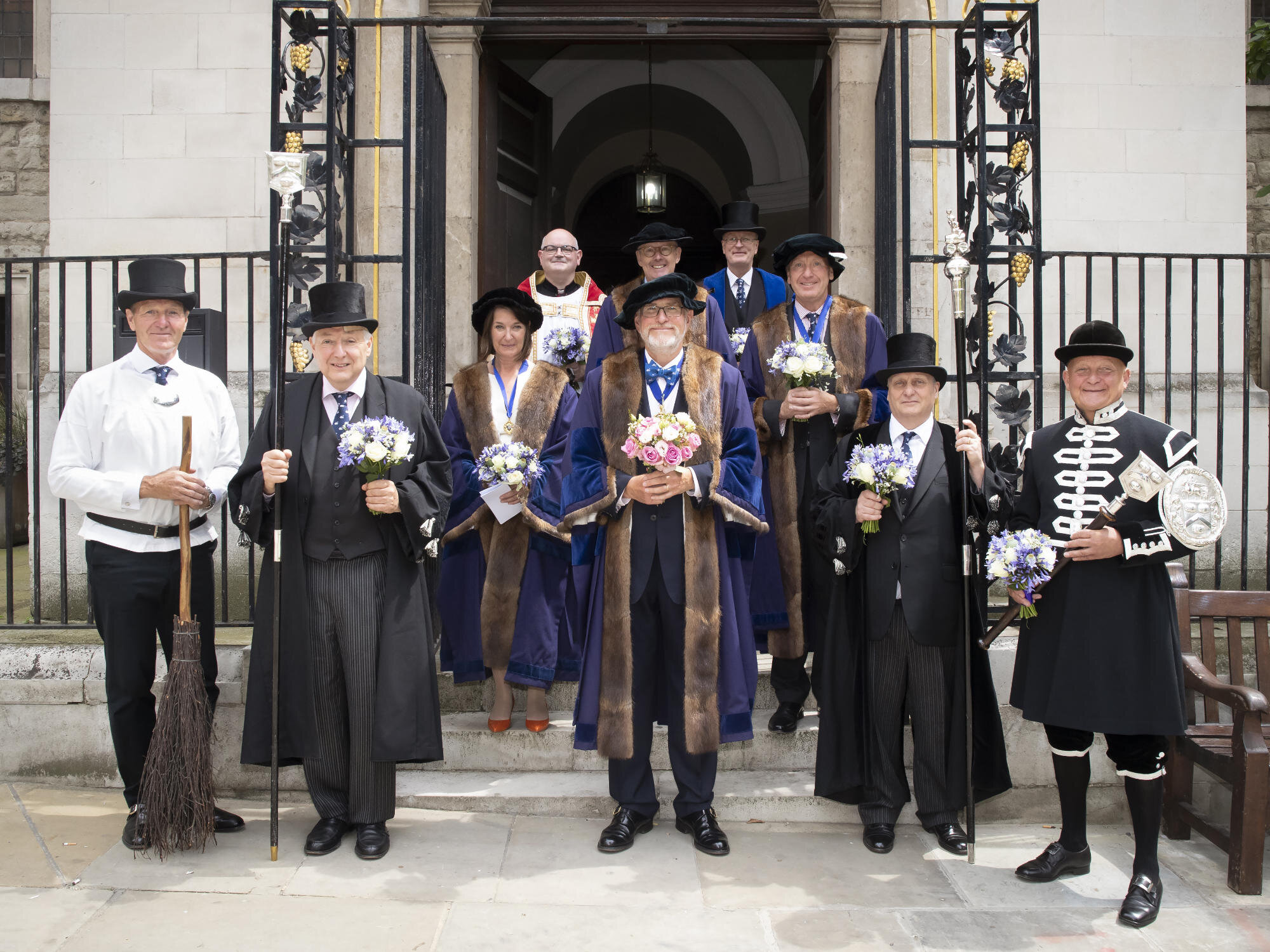
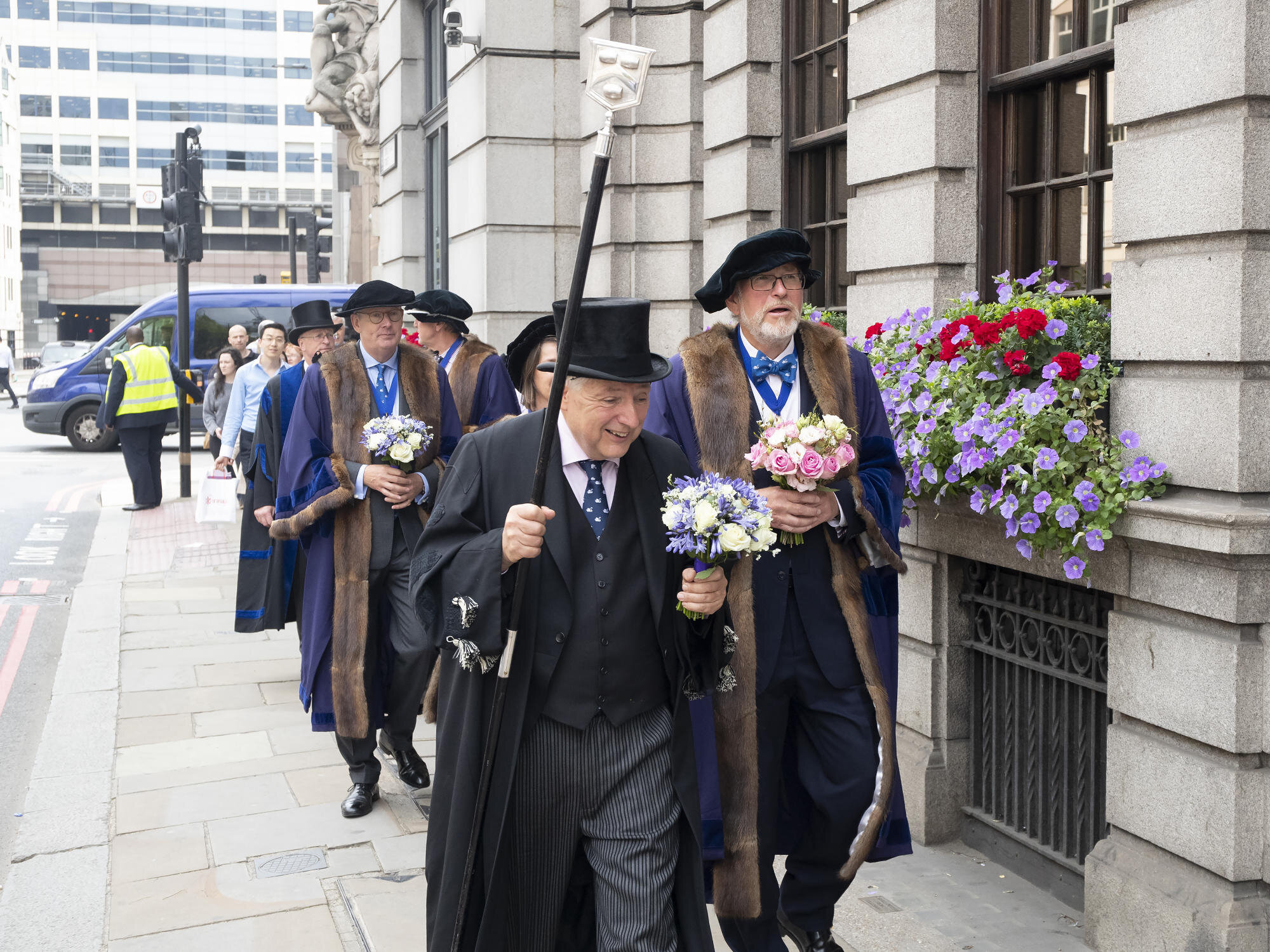


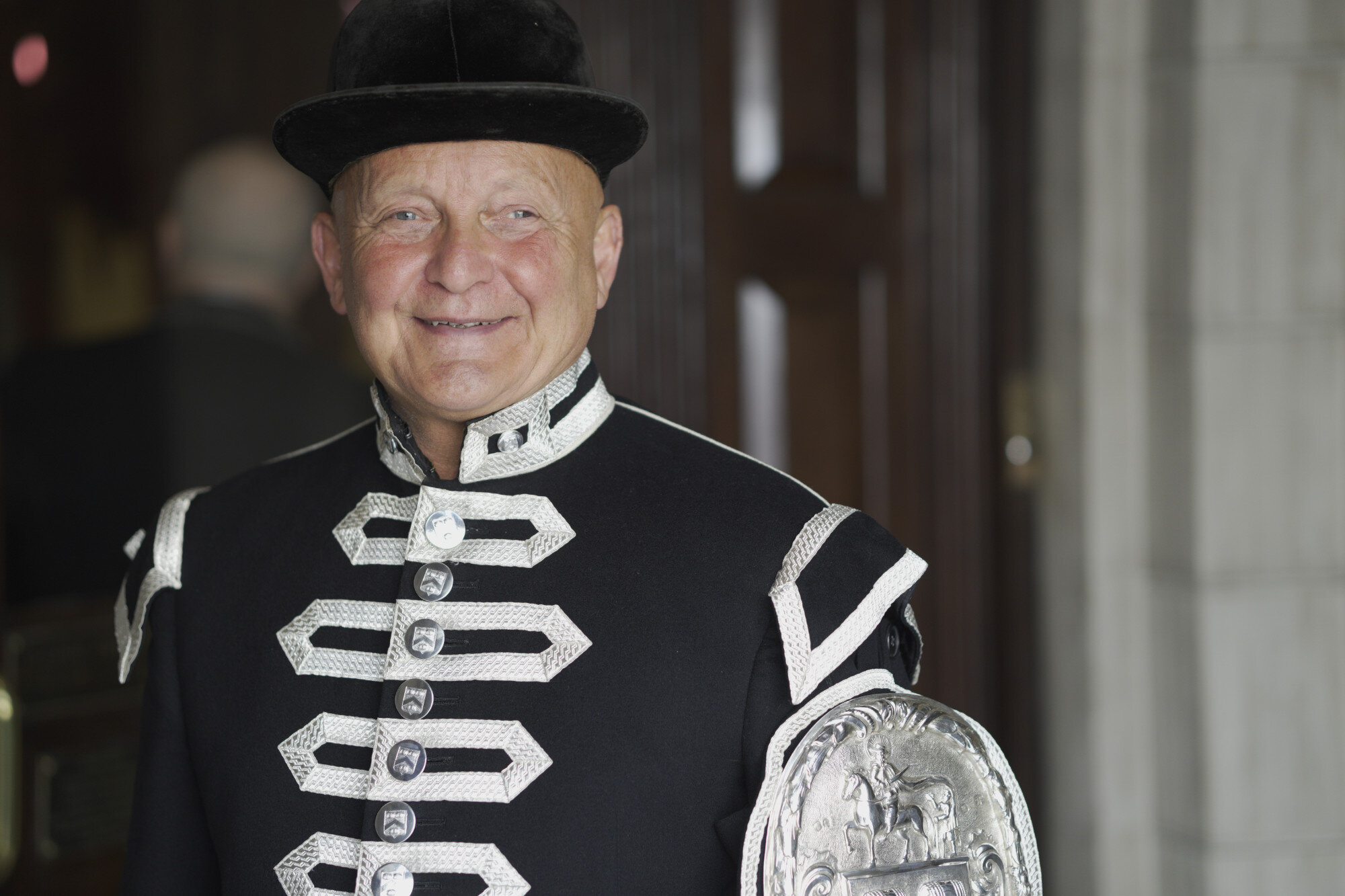
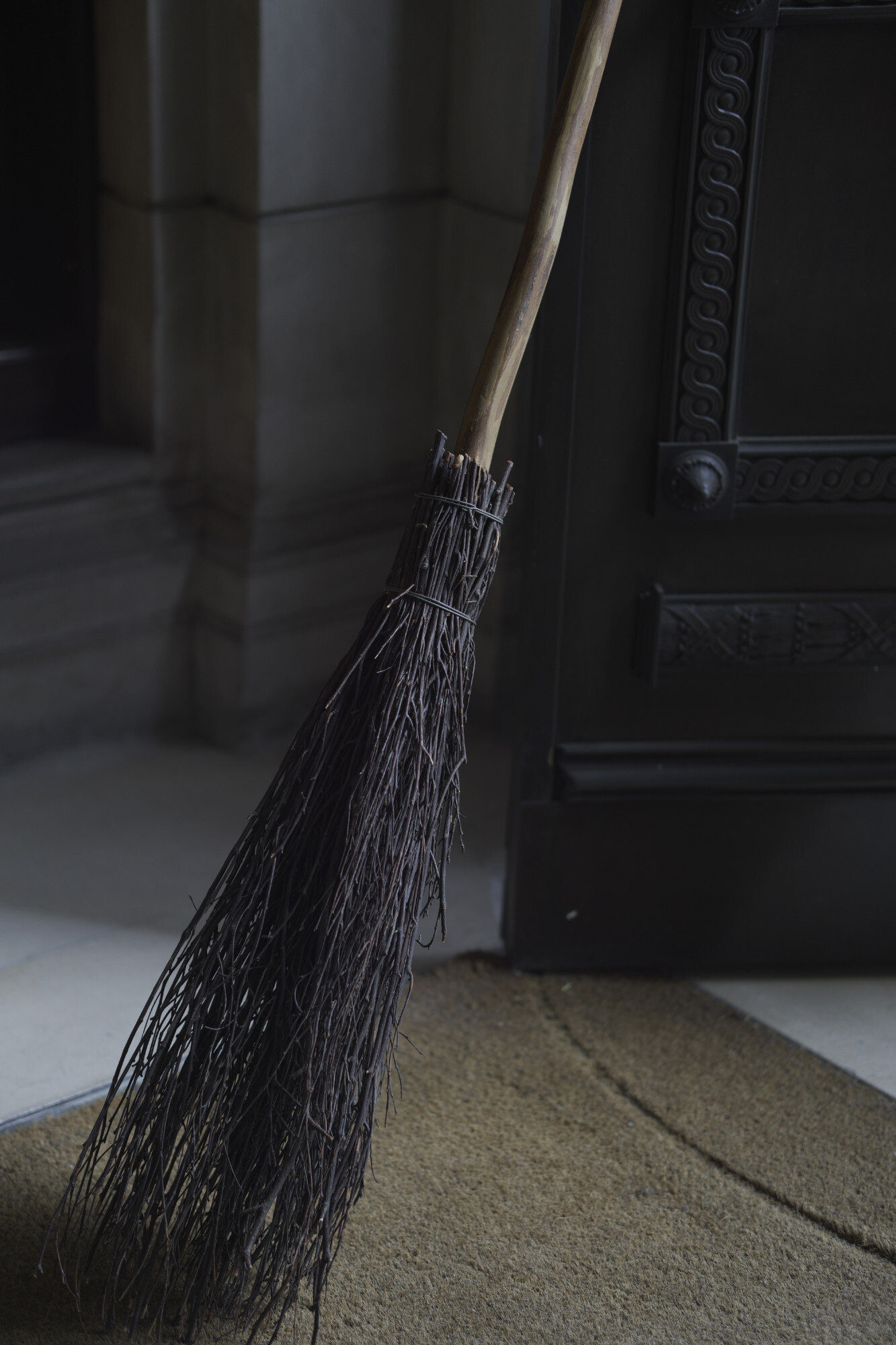
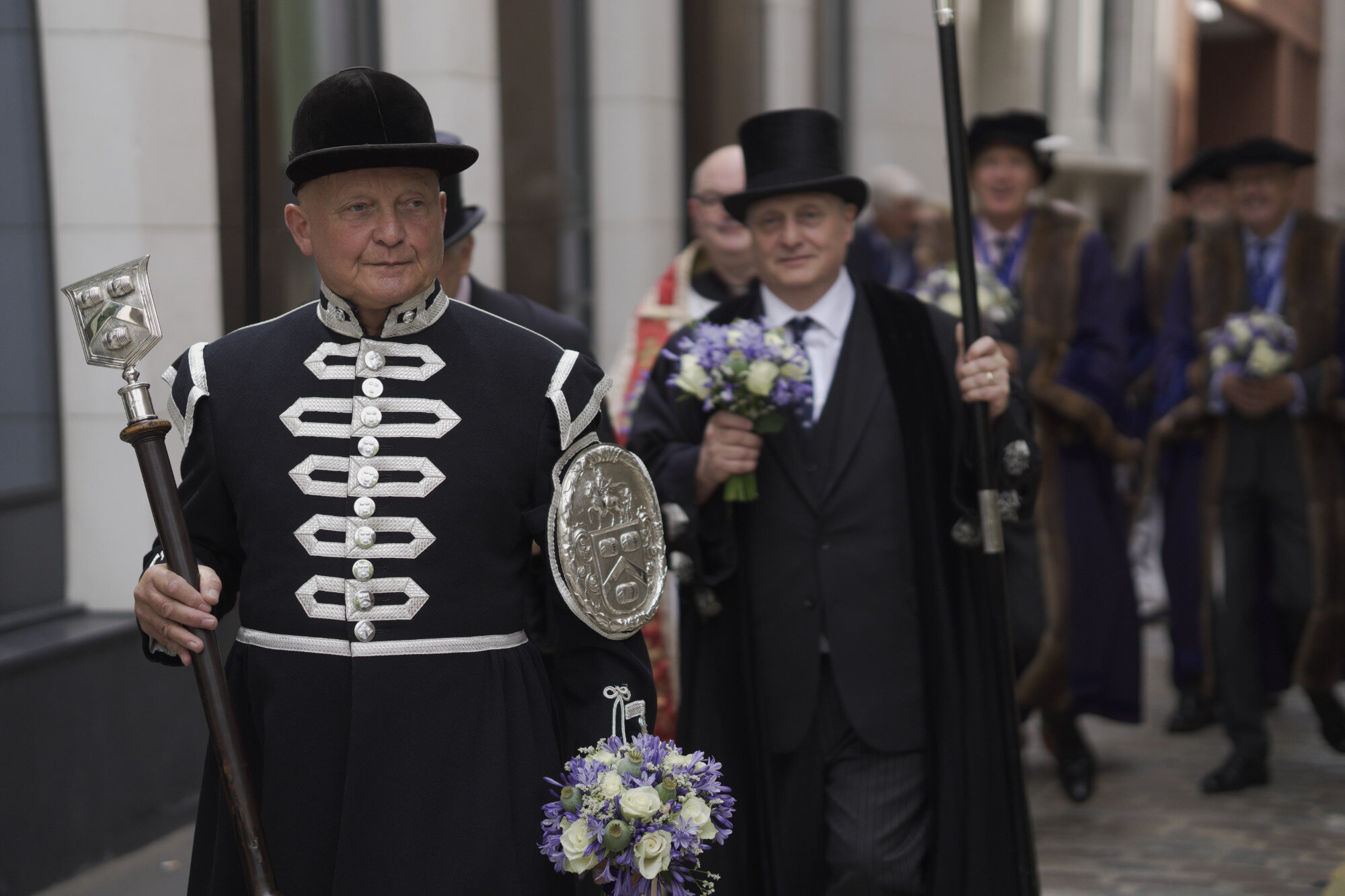
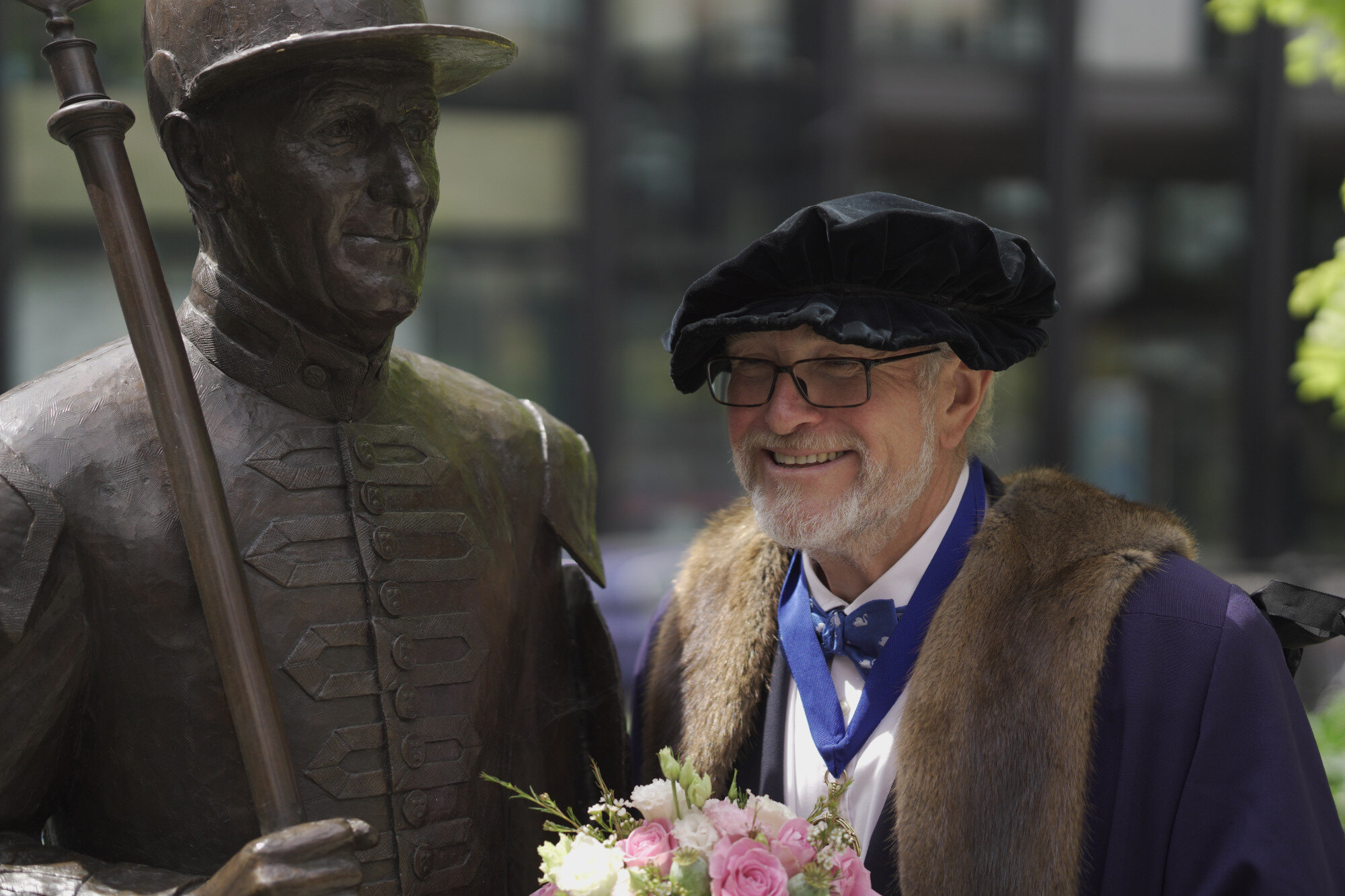
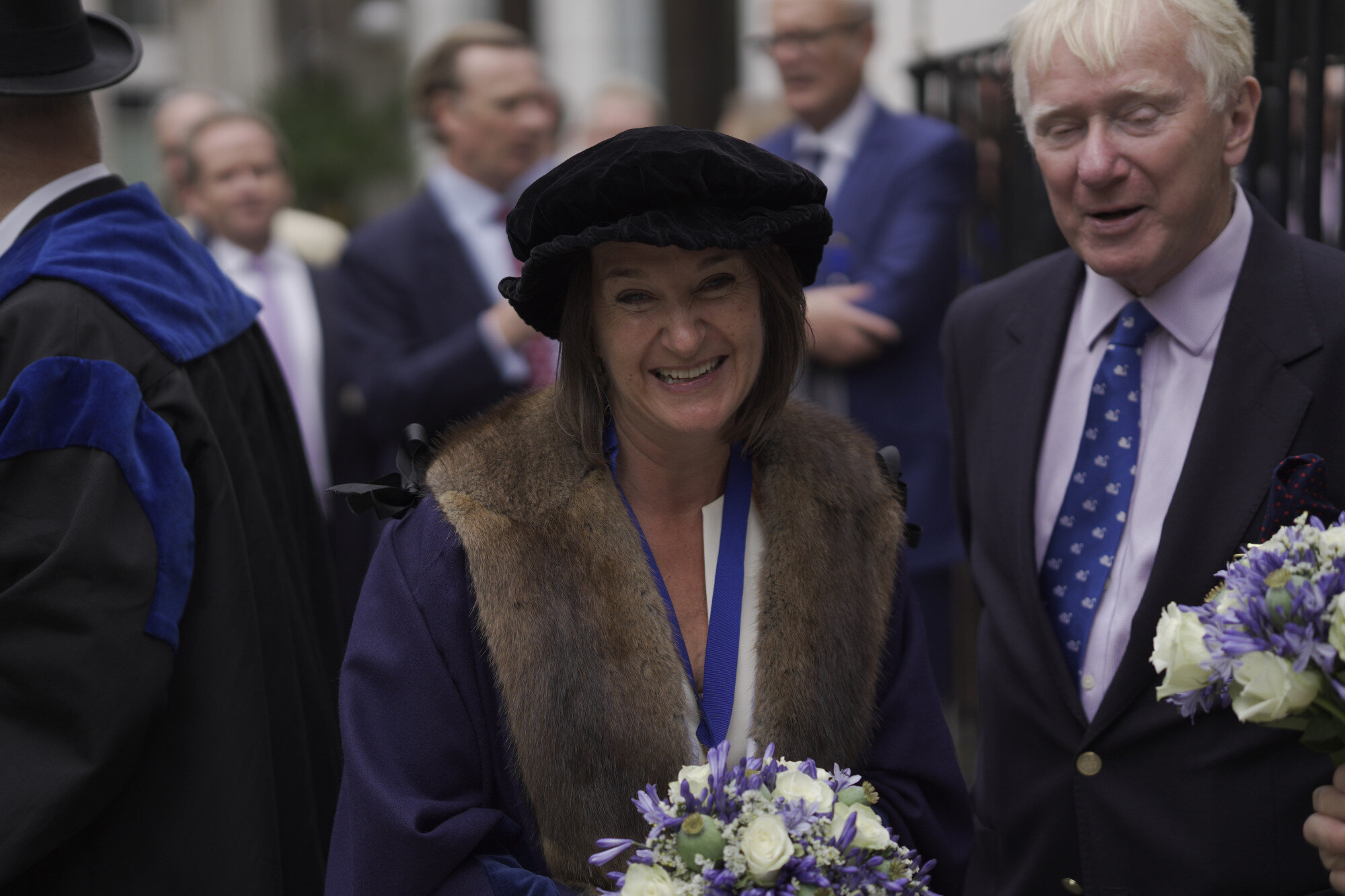
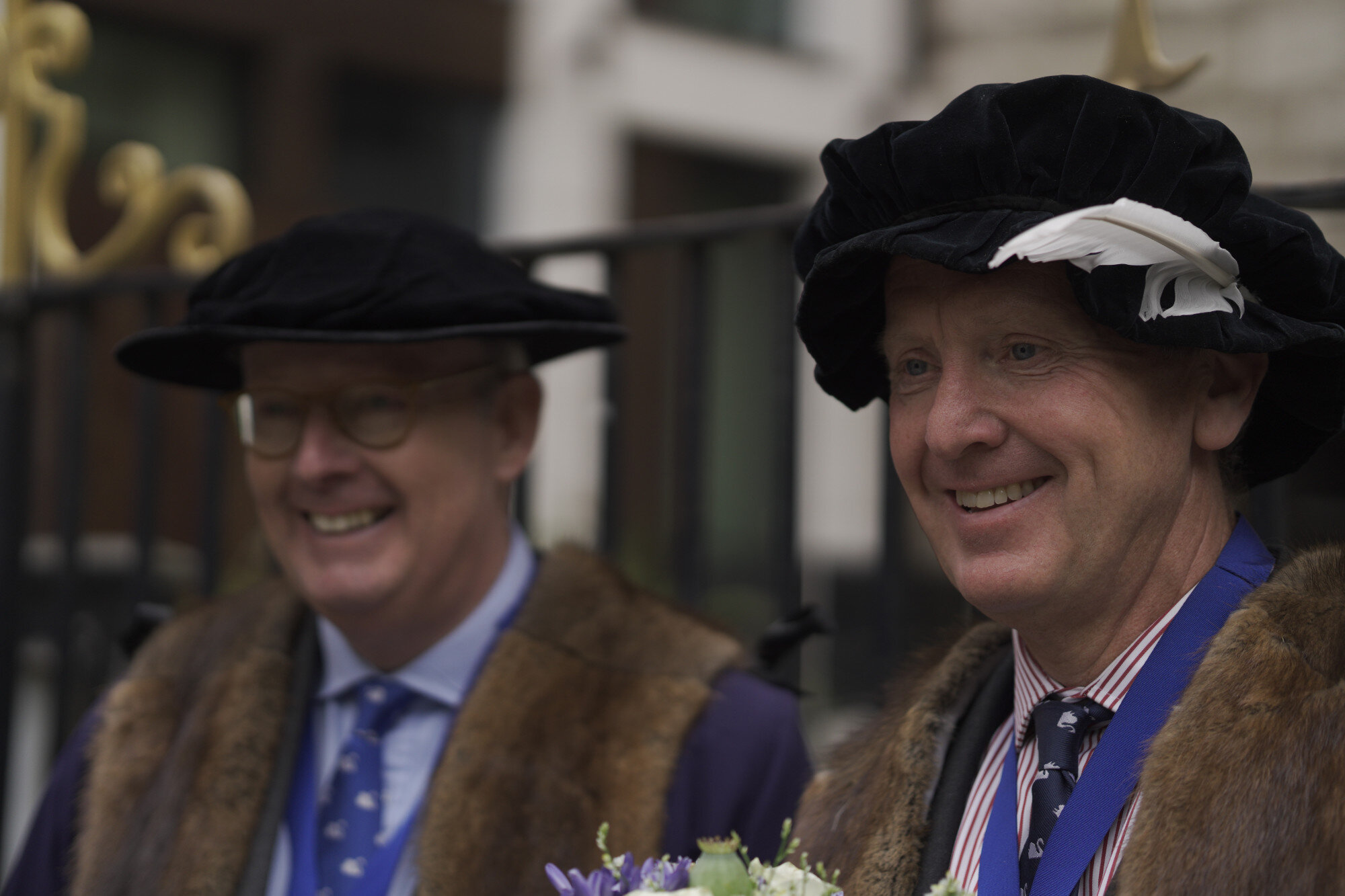
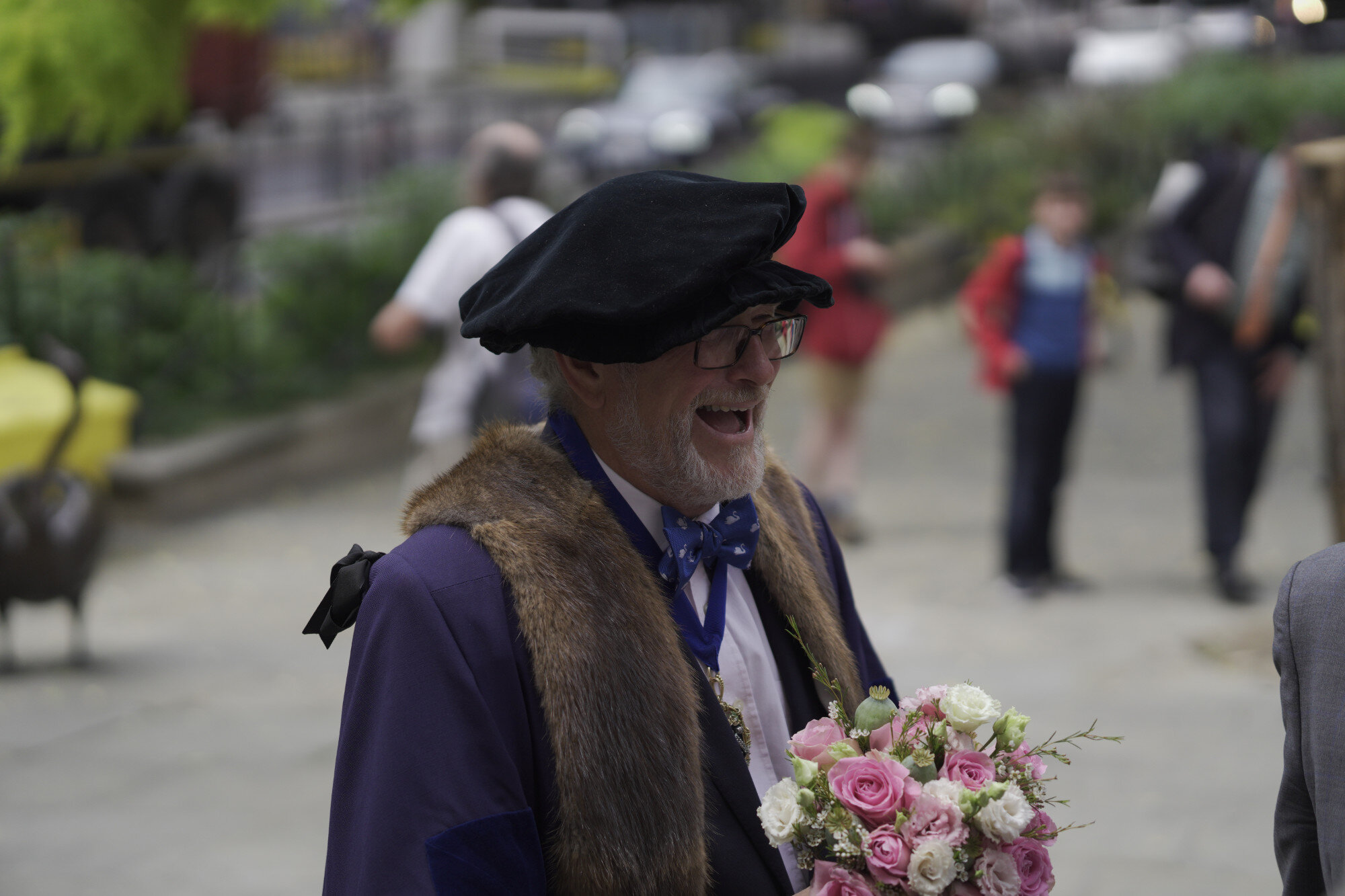
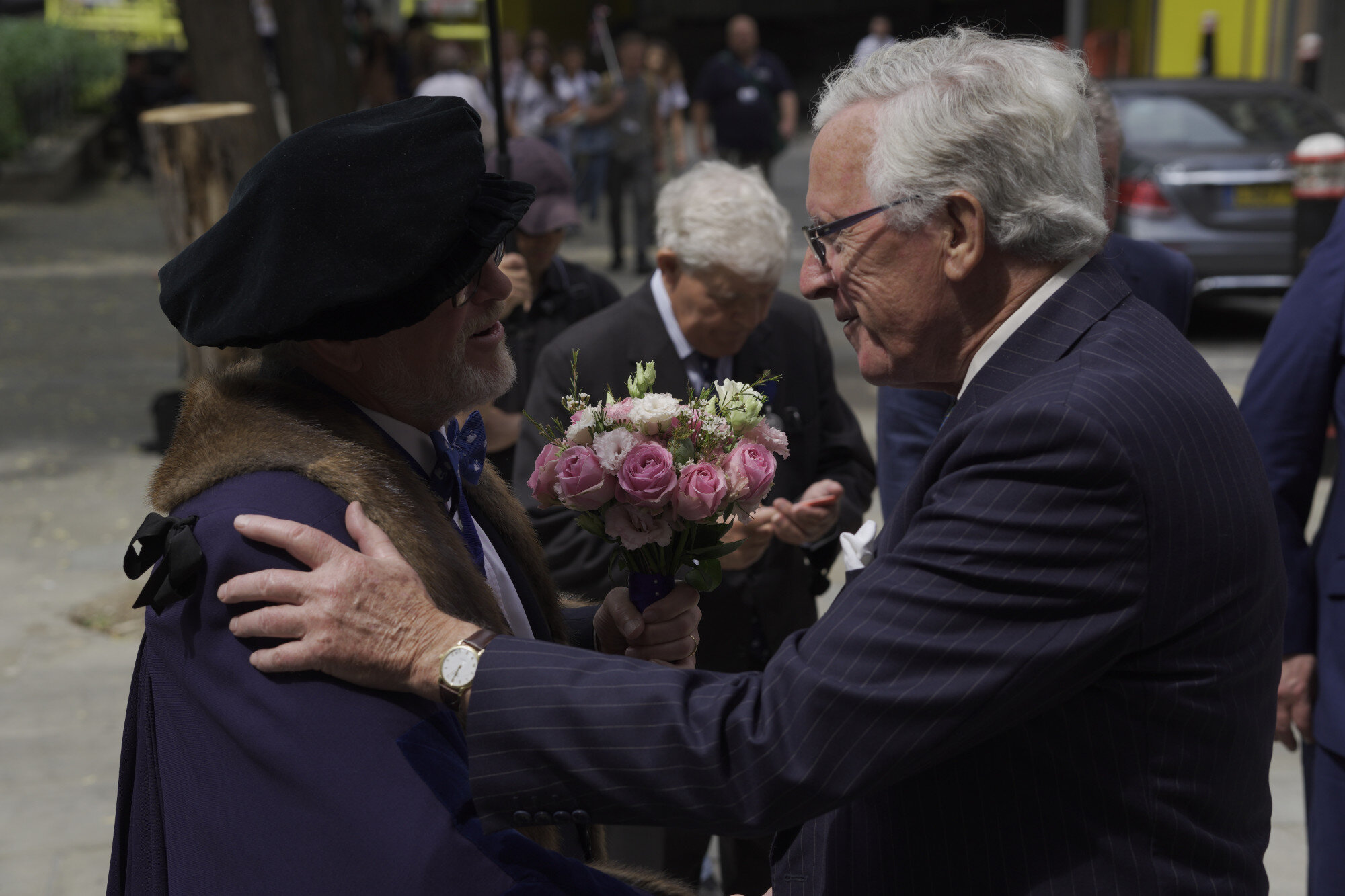
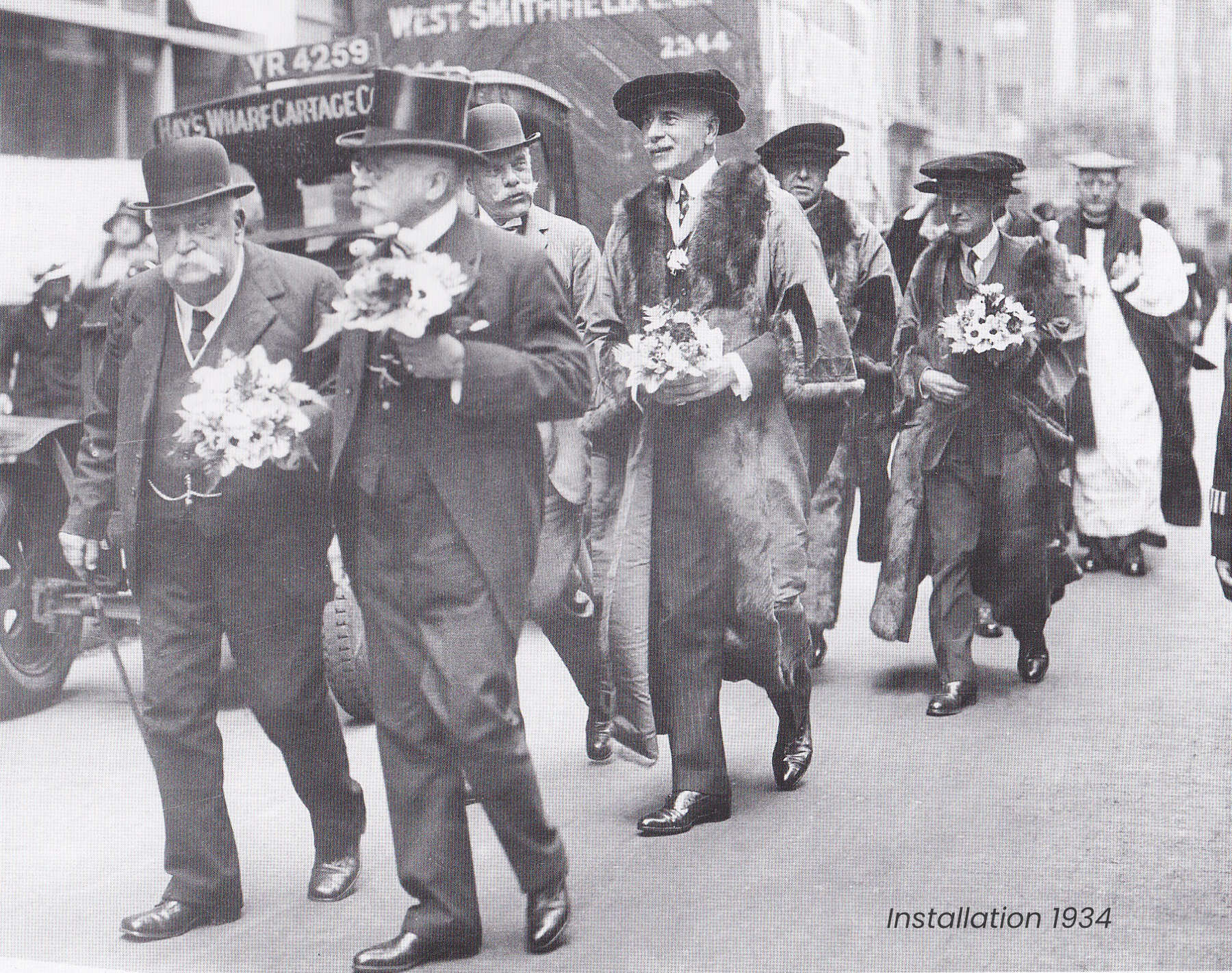
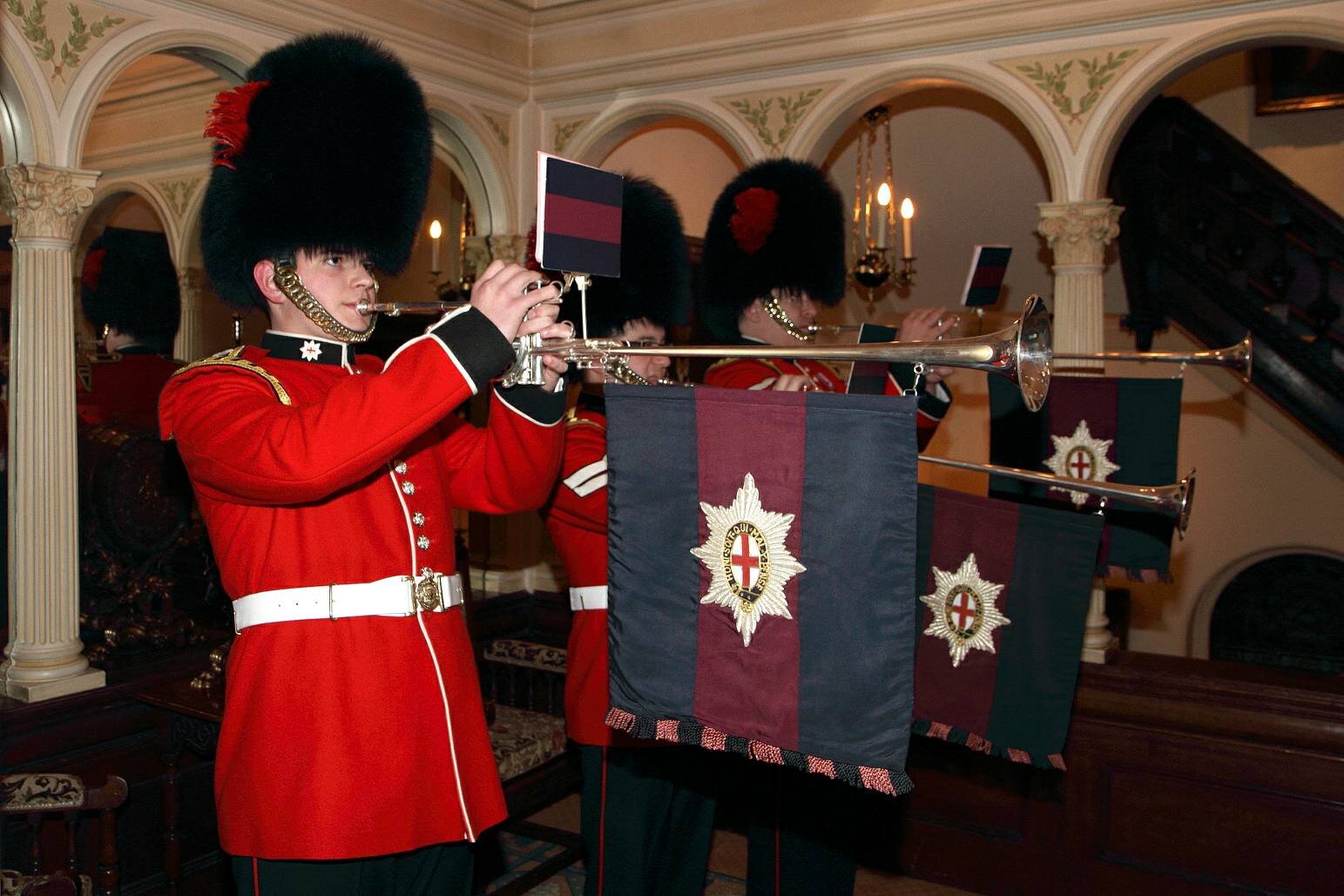
Swan Feast
The Swan Feast takes place every year. Cooked like a turkey or a chicken, swans were a medieval delicacy -‘stuffed with herbs and pork fat, sealed in a paste of flour and water and roasted for 2-3 hours until tender’.
The annual Swan Feast held on the last Thursday of November maintains this tradition. However, swan as a culinary delight has not lived up to its medieval reputation – the muscly legs and wings are very tough meat, and the birds are no longer eaten.

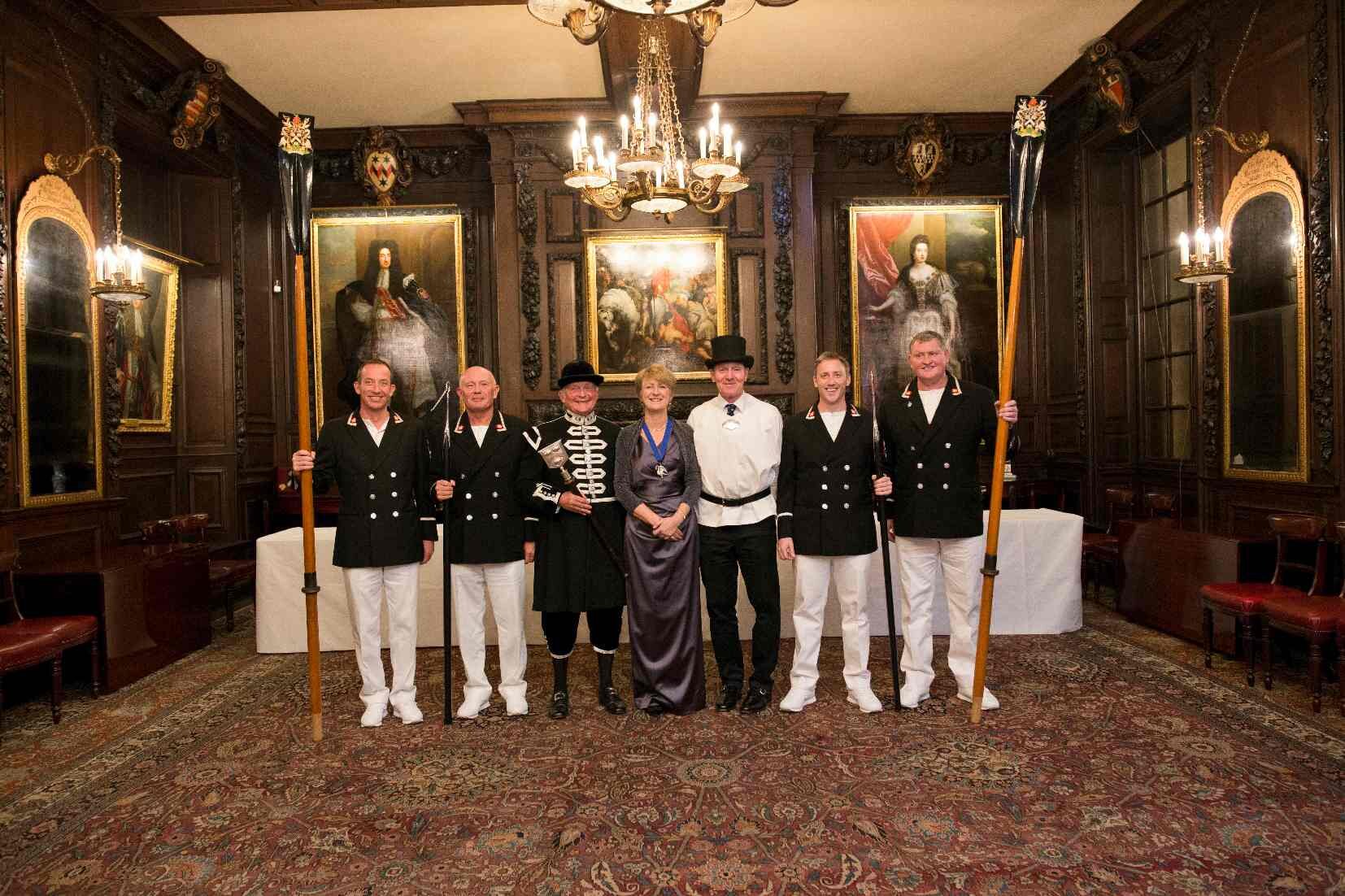
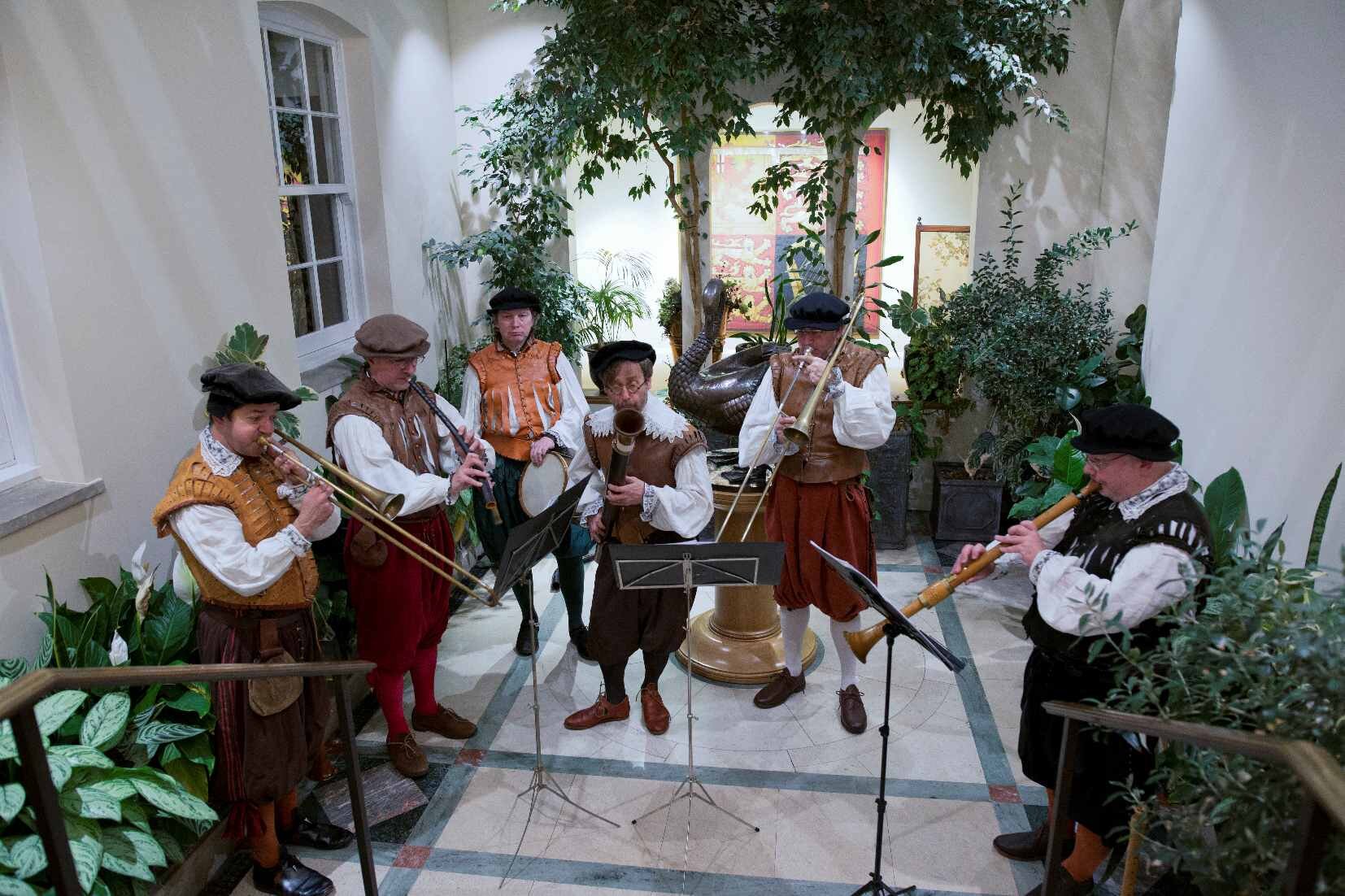
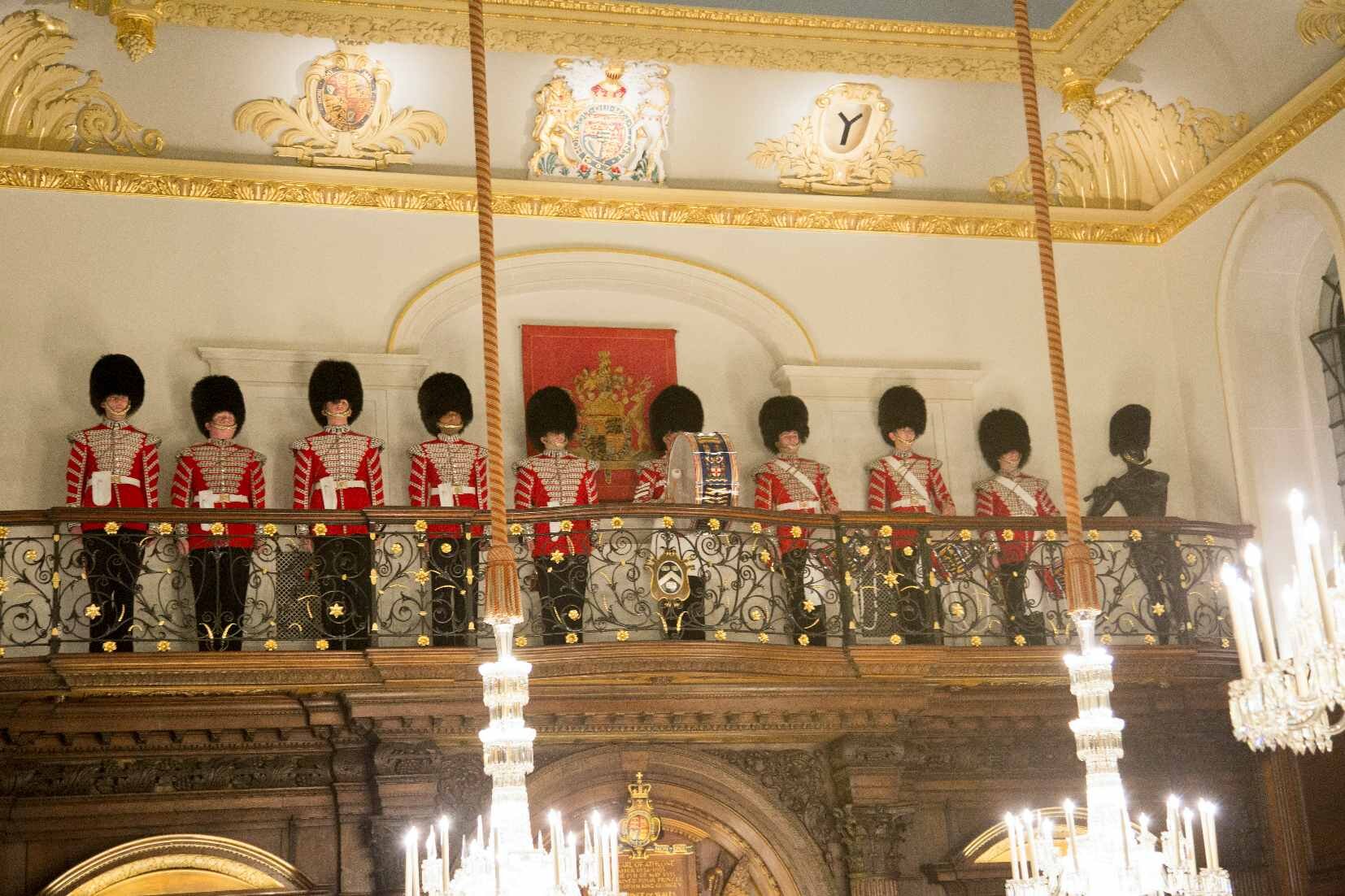
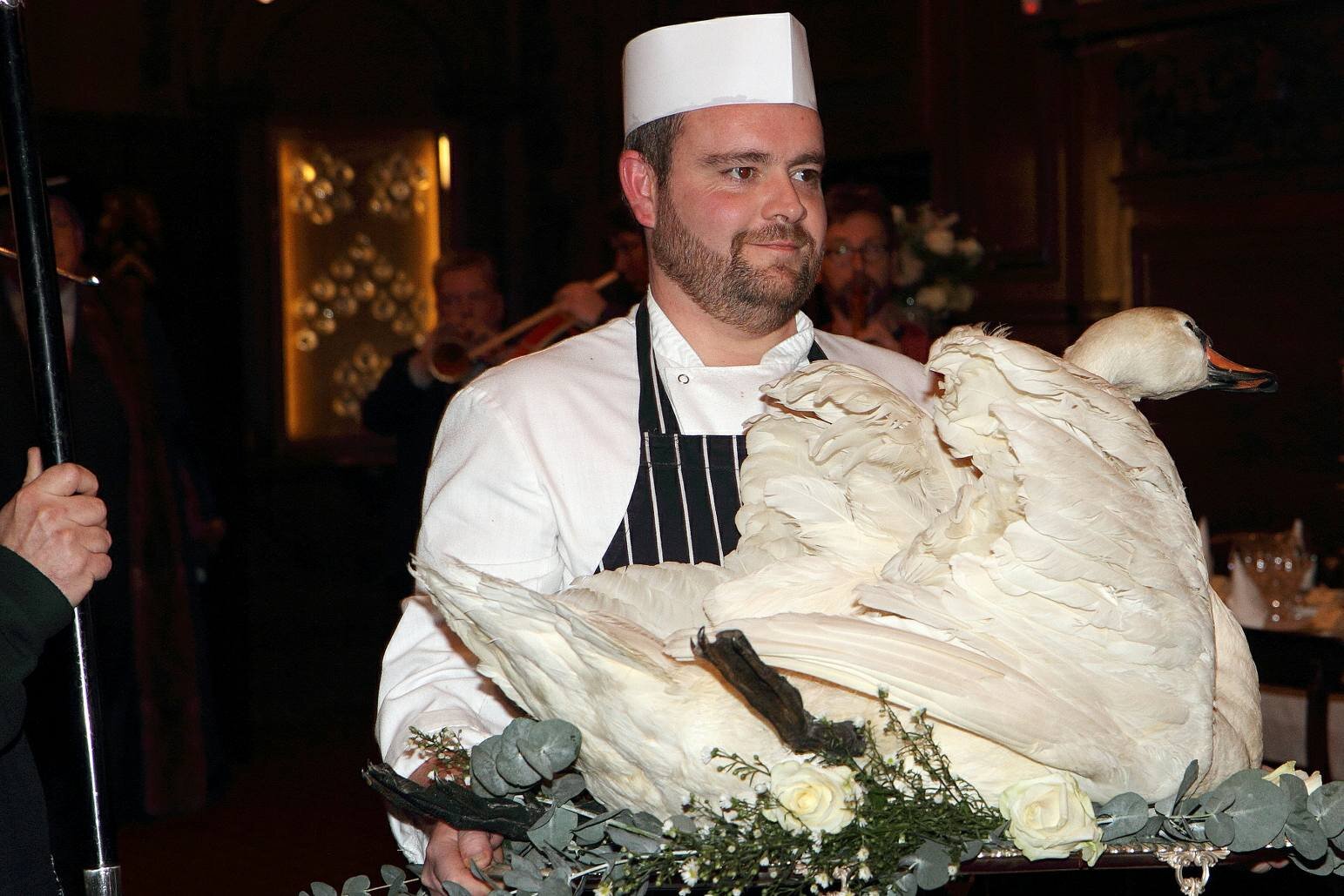
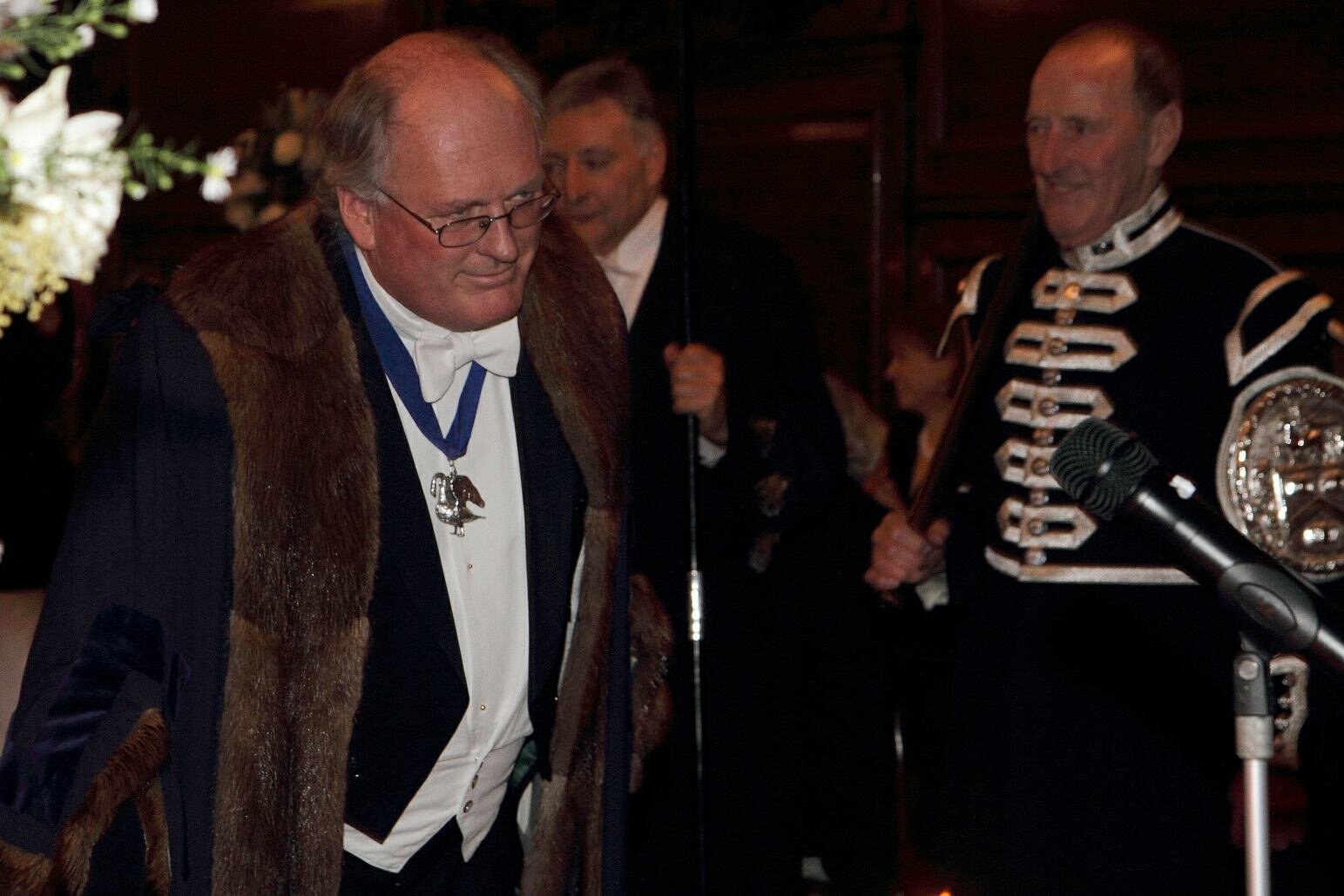

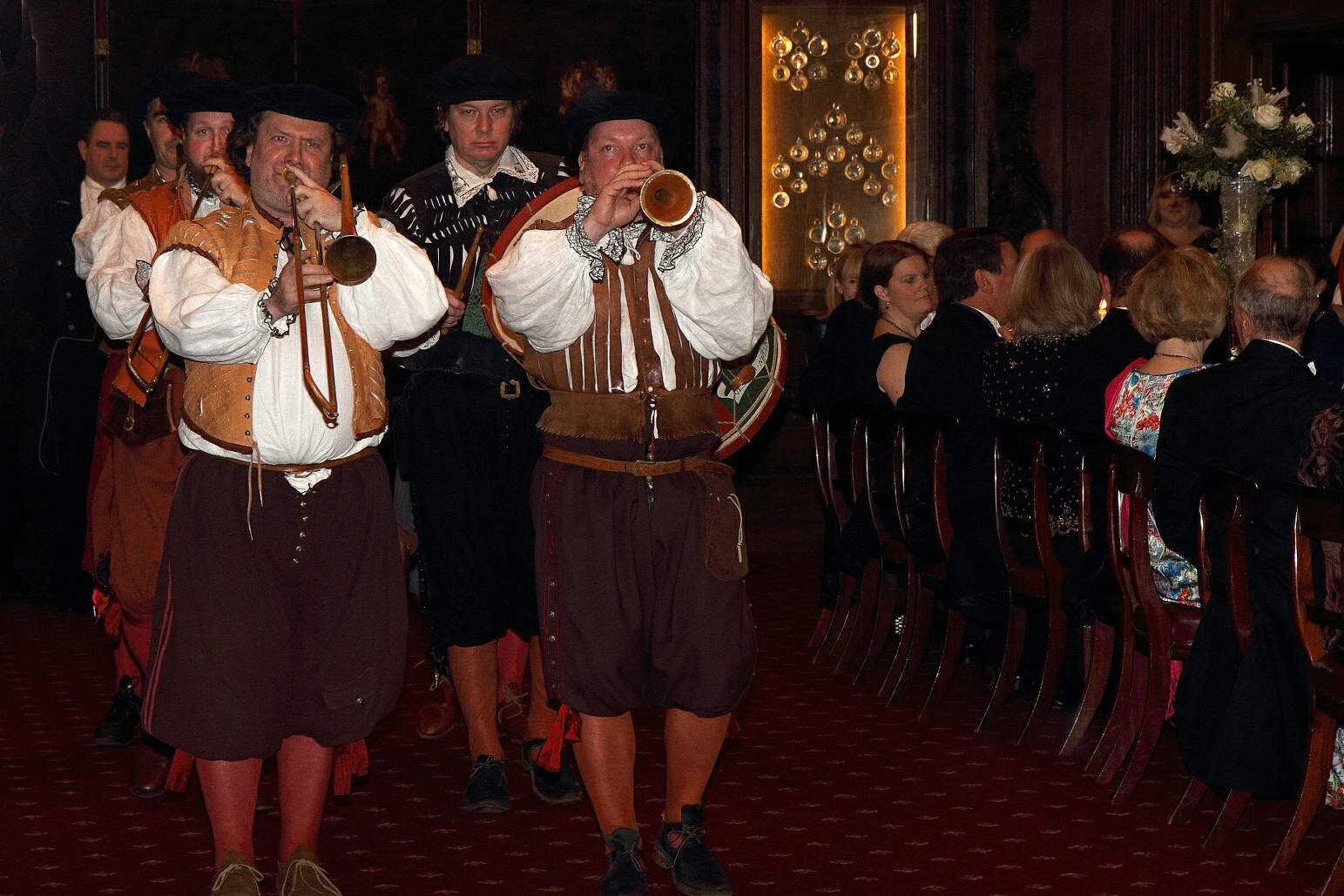
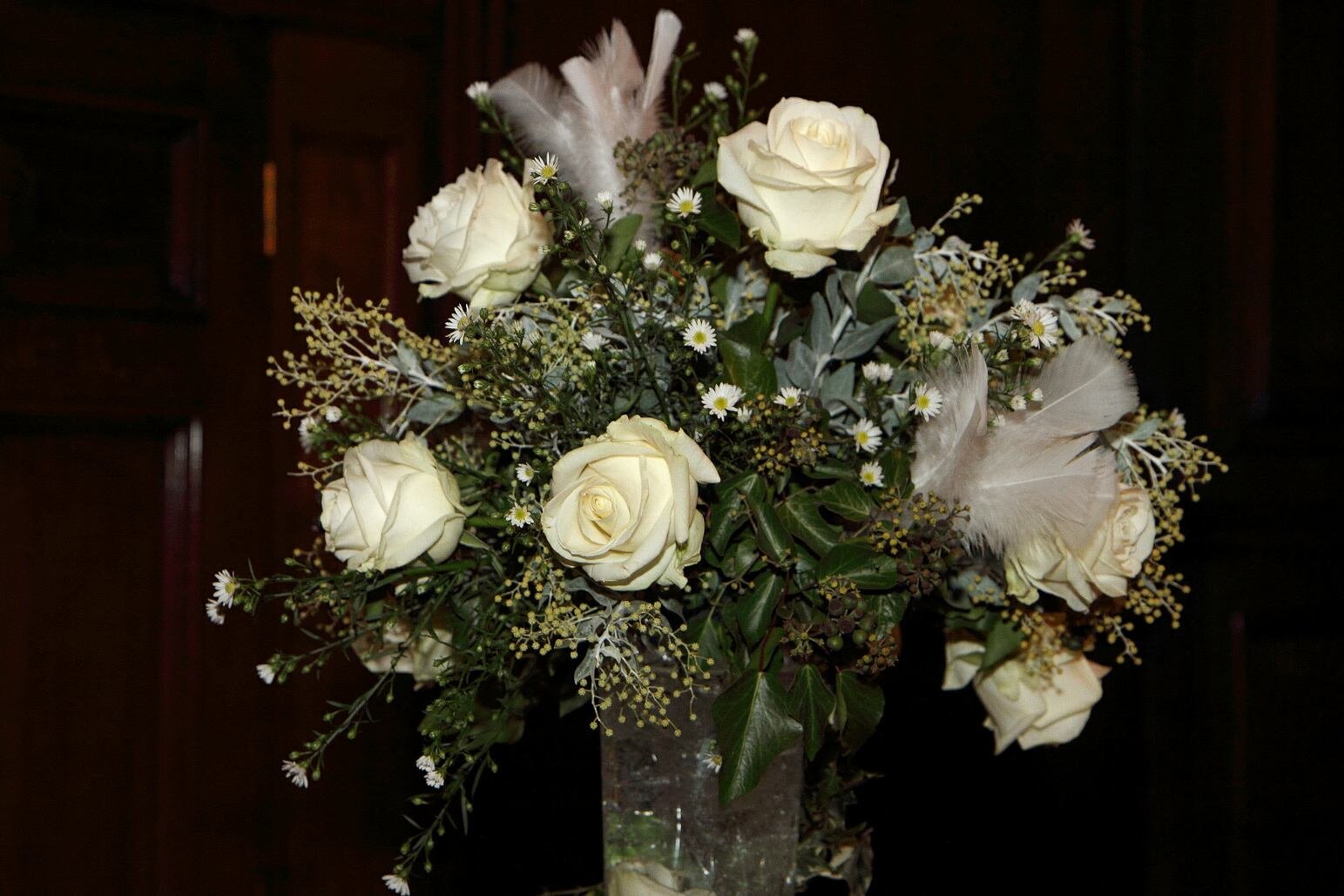
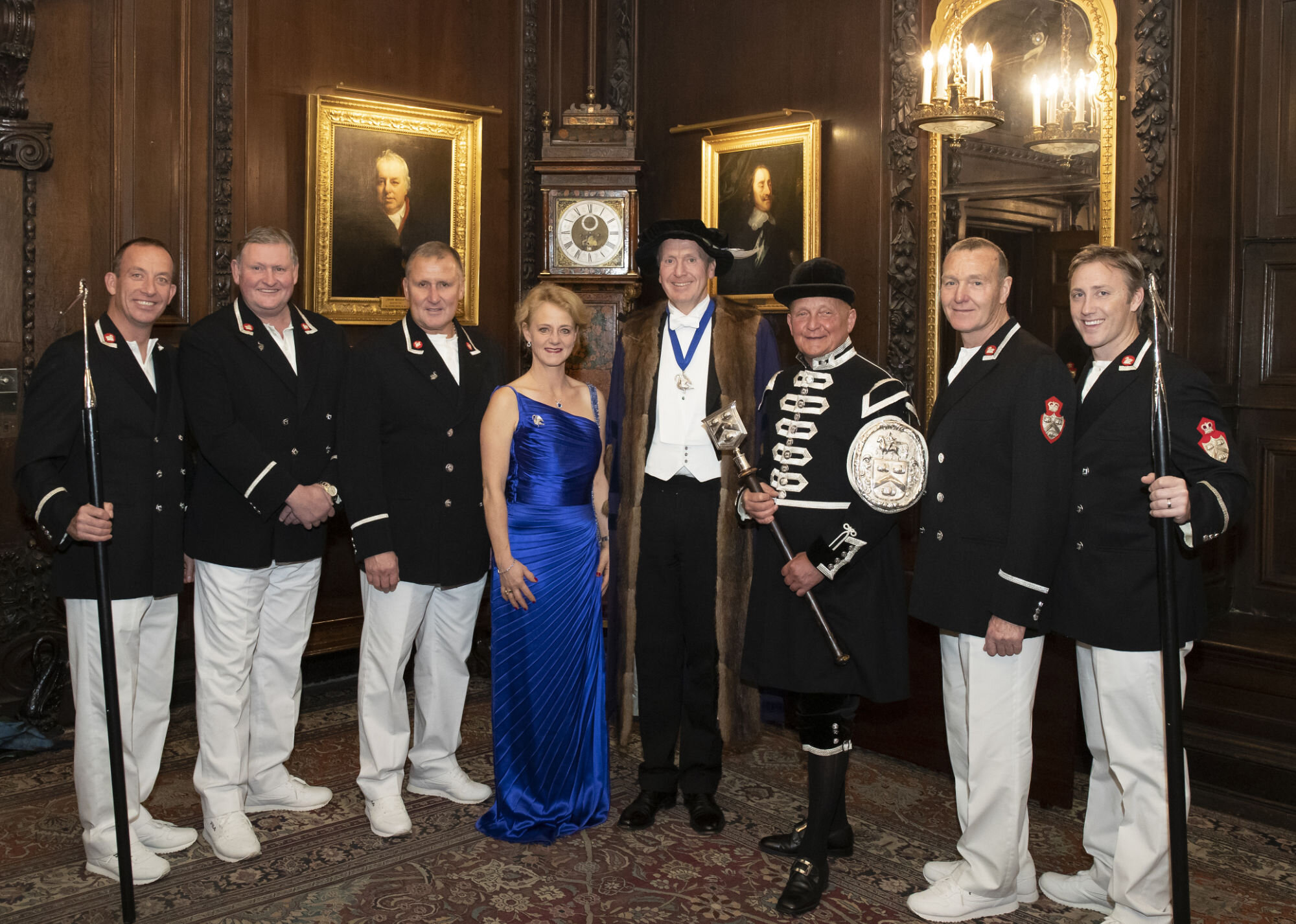
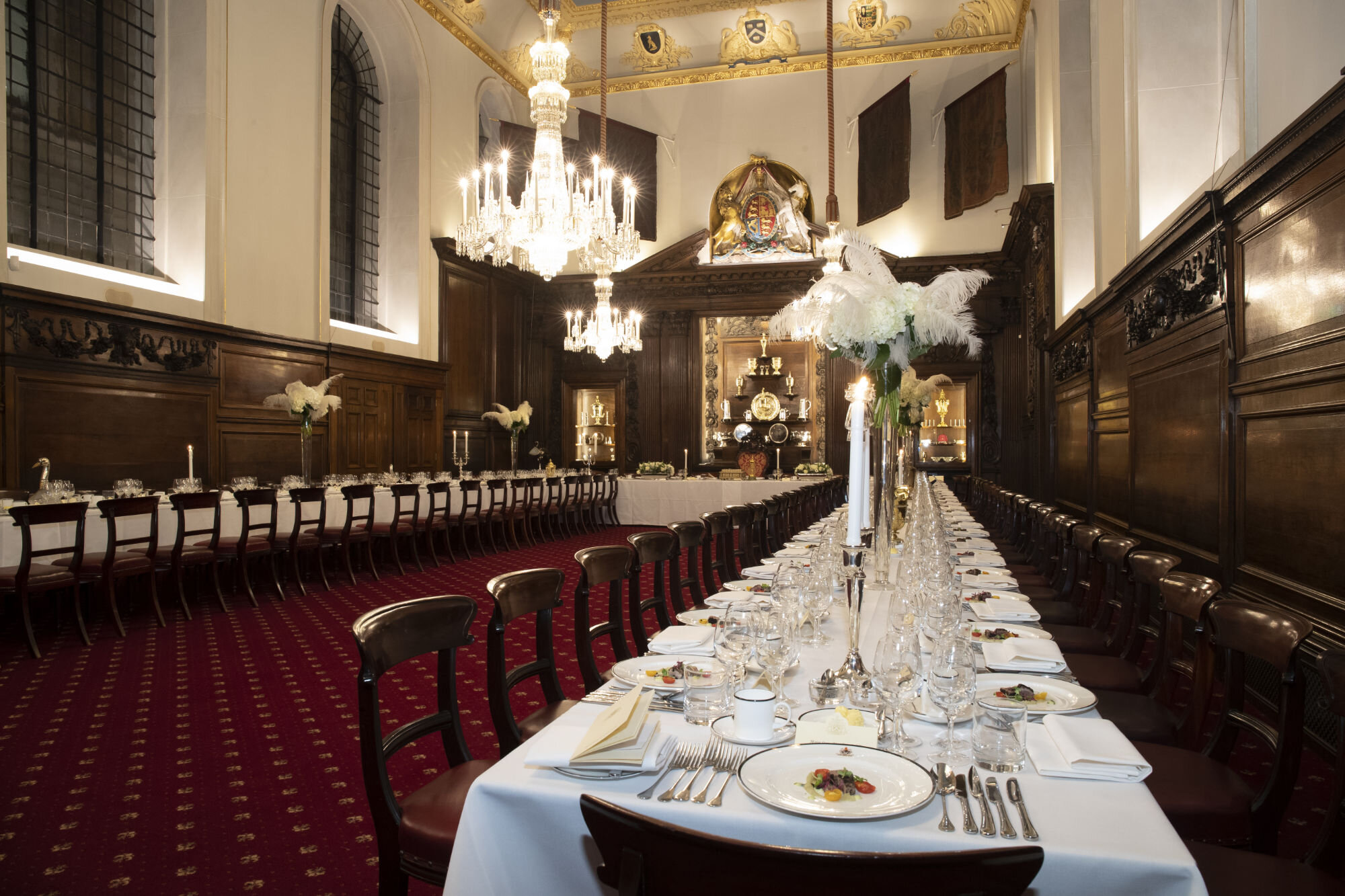
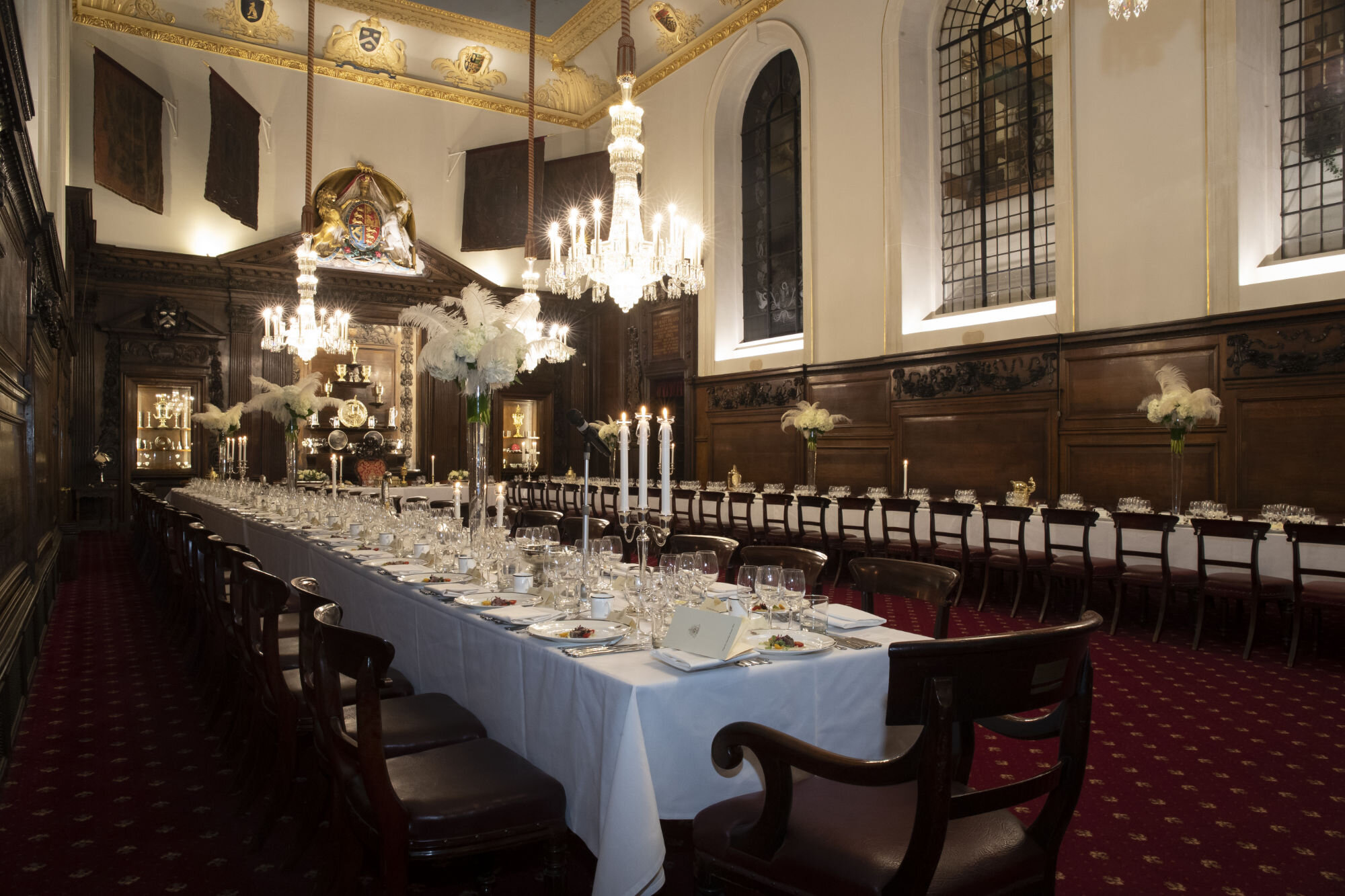
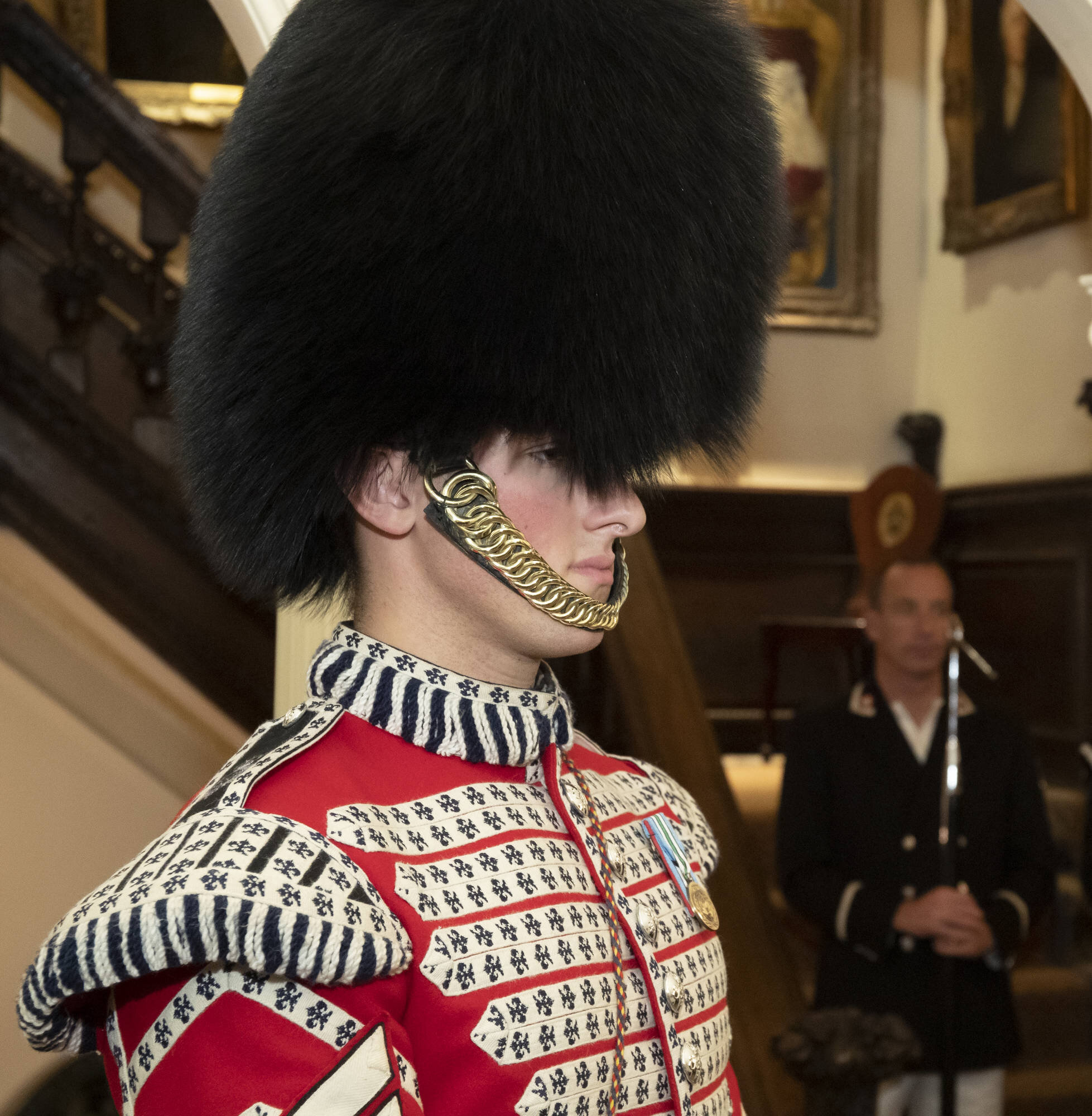
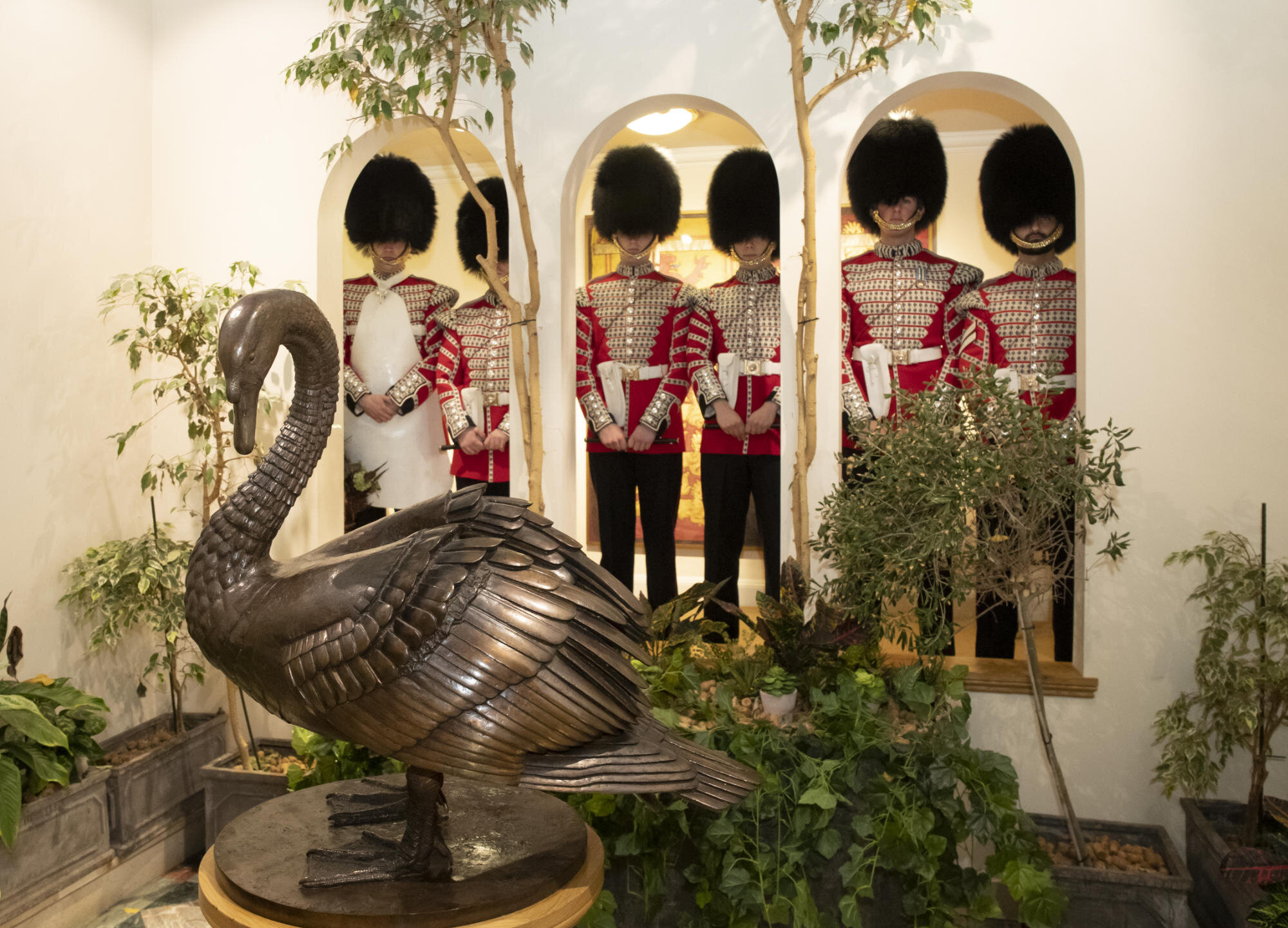
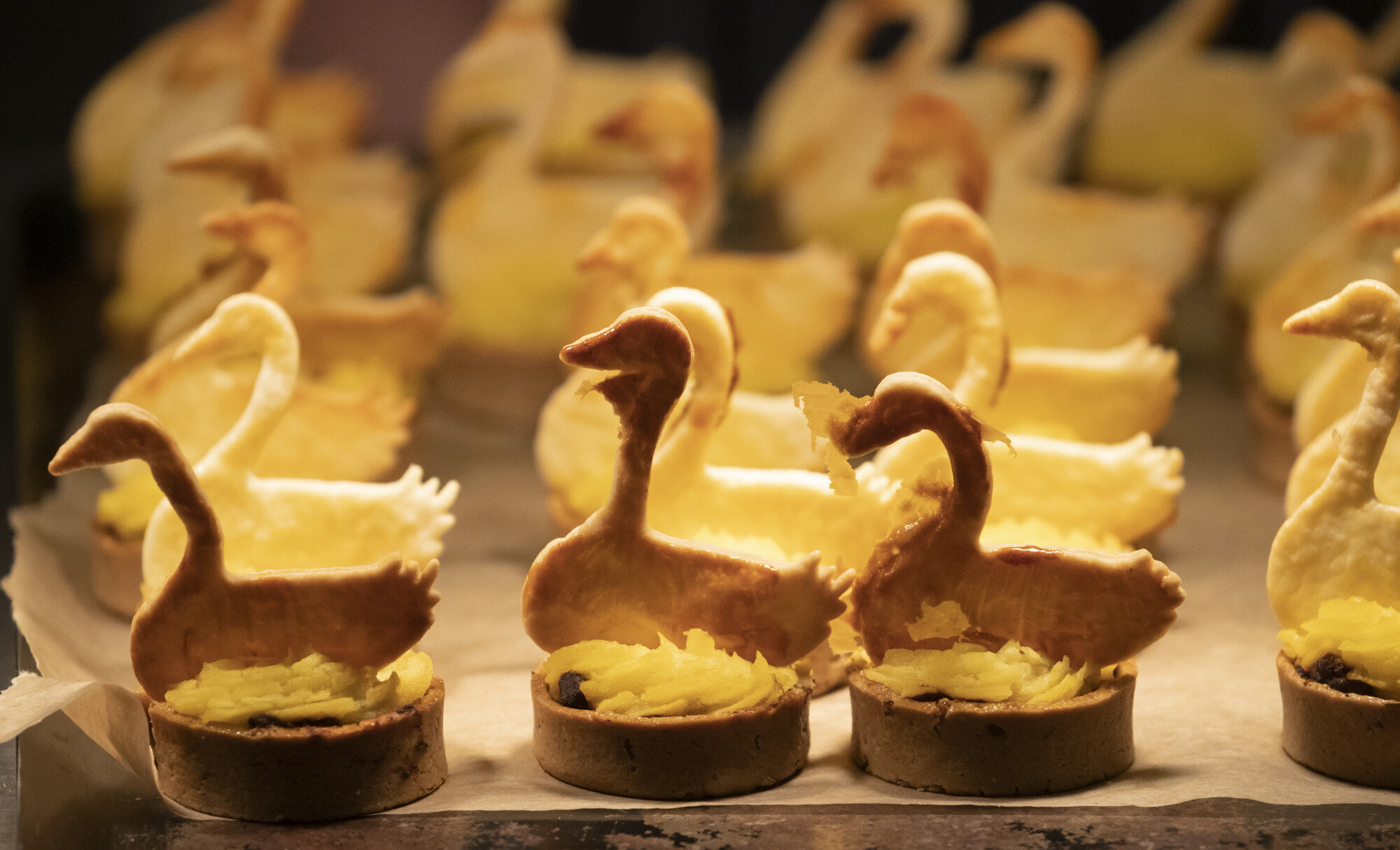
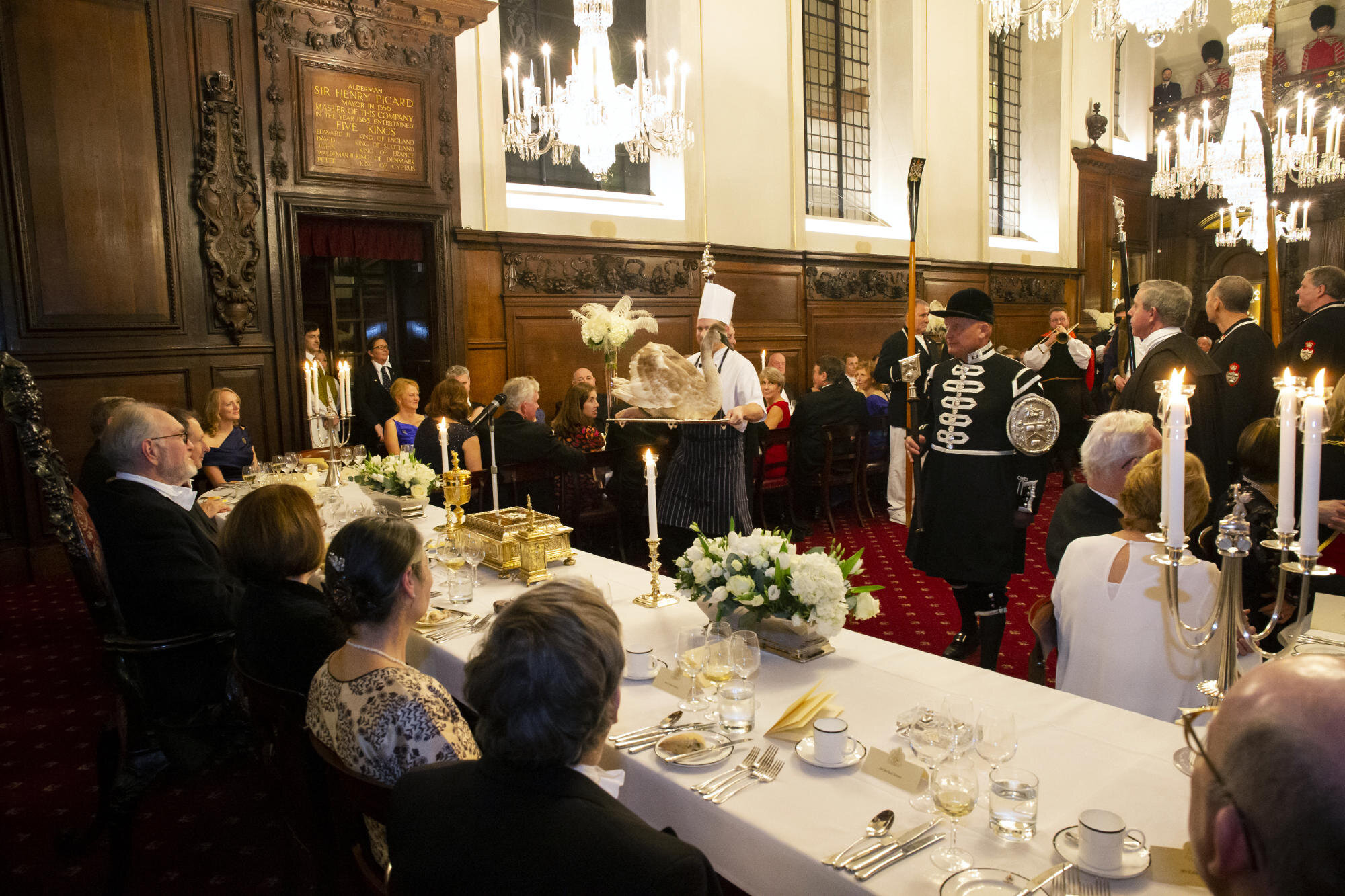
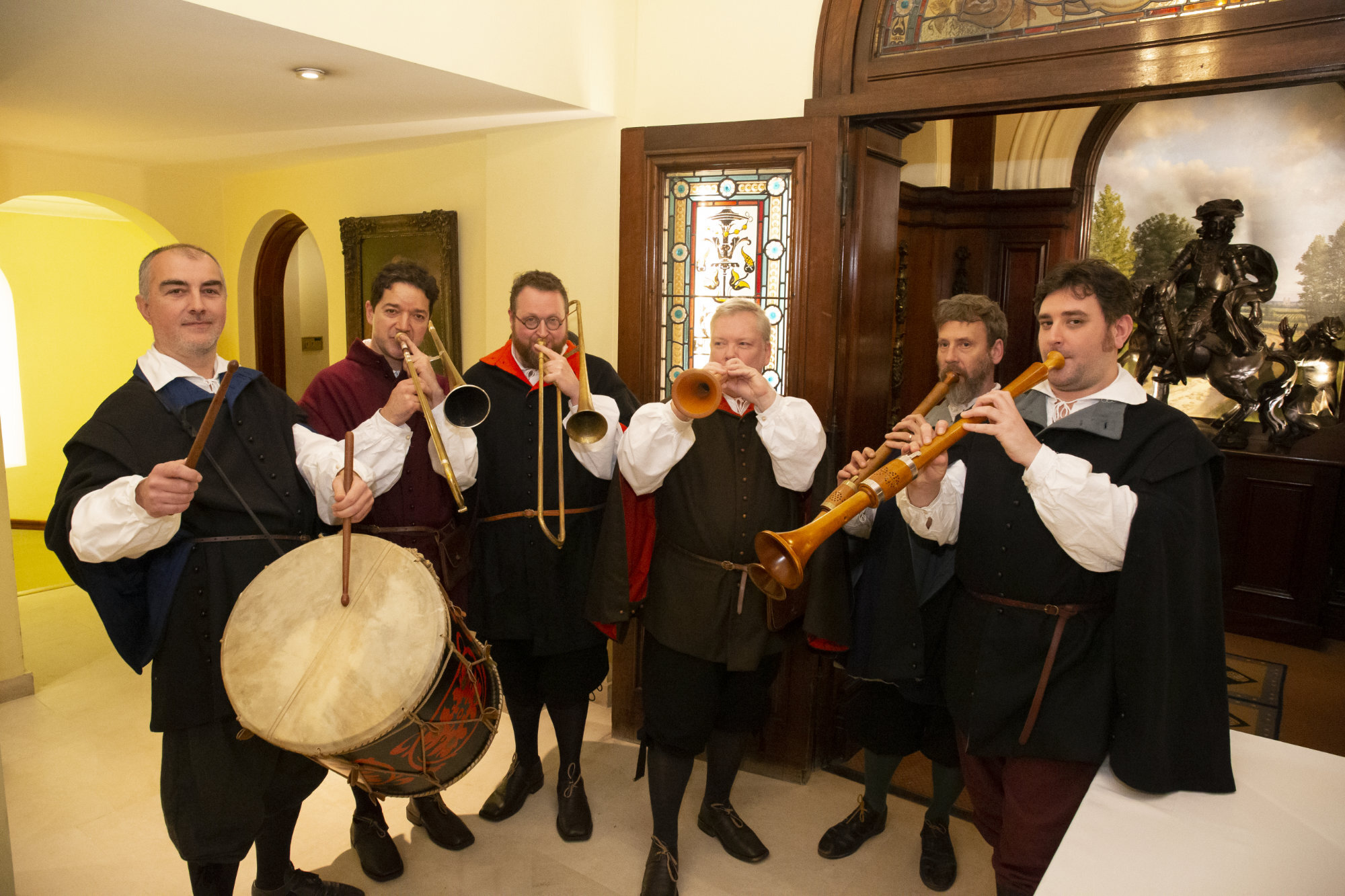





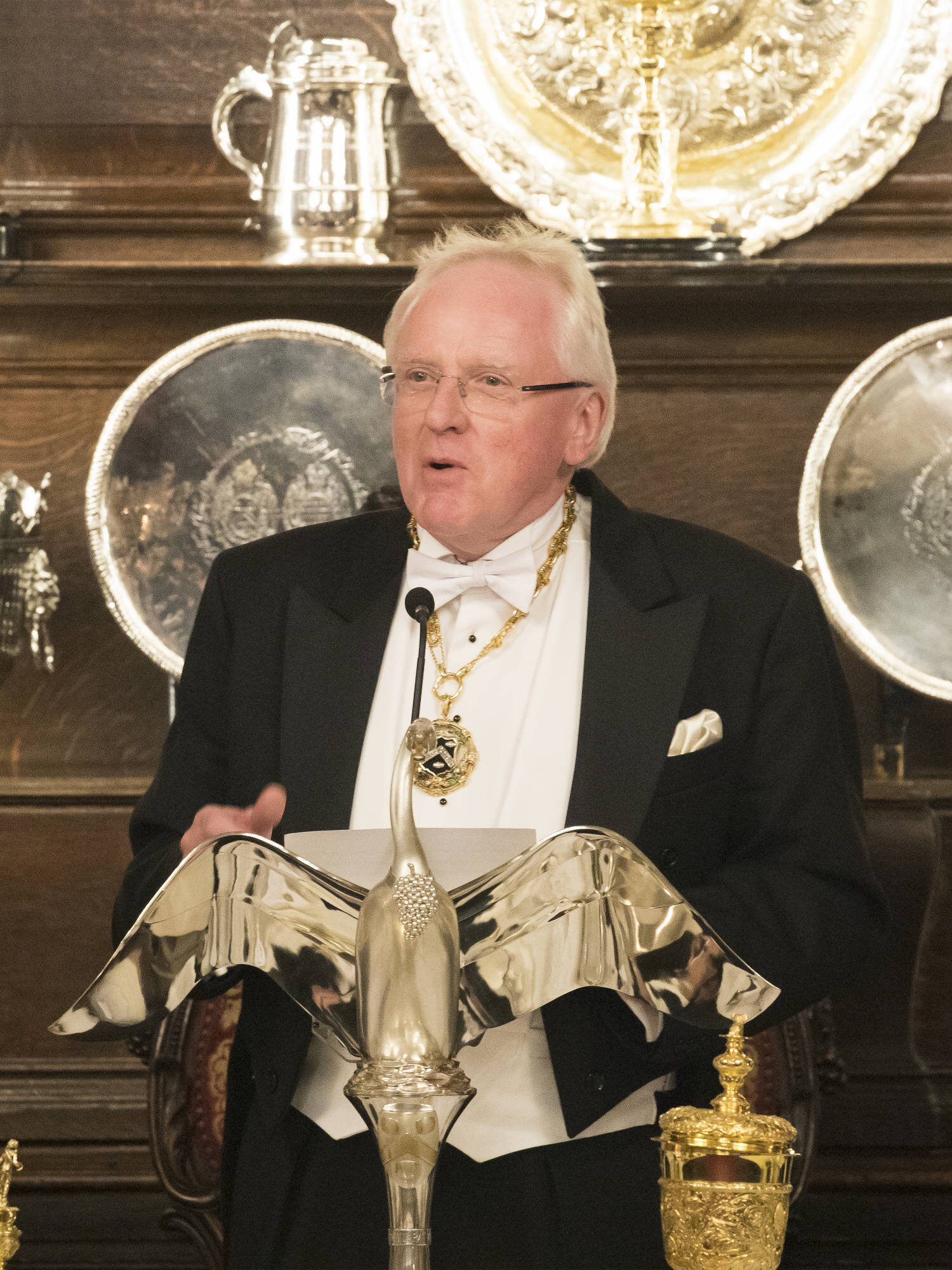
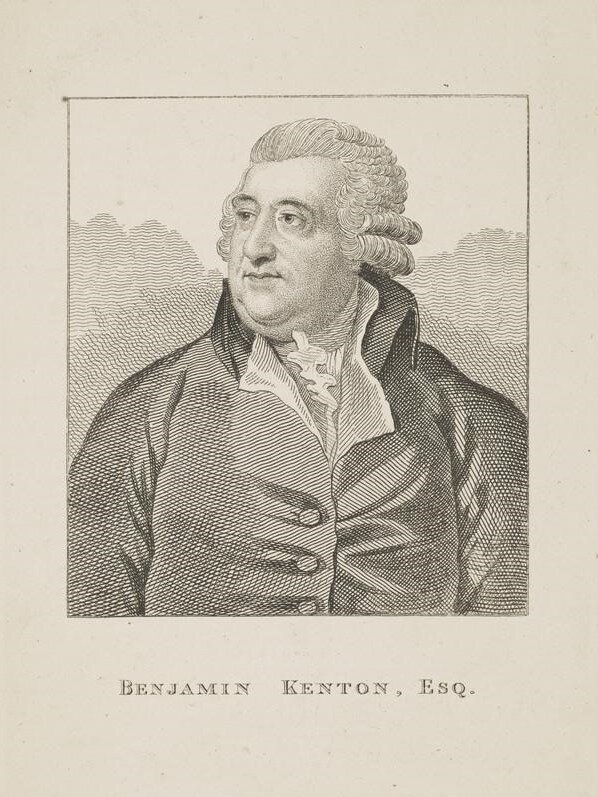
Kenton Day
Every year in the summer, the Company attends a service dedicated to the remembrance of Benjamin Kenton, the Master in 1776.
Children from schools he endowed also attend, some of them wearing the traditional clothes of Kenton’s period.
